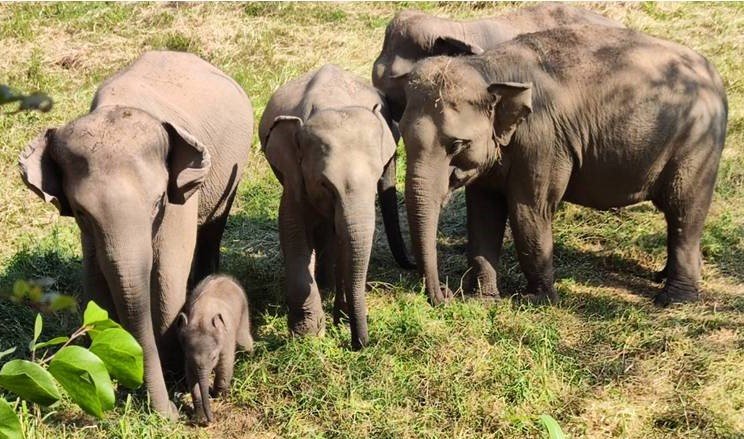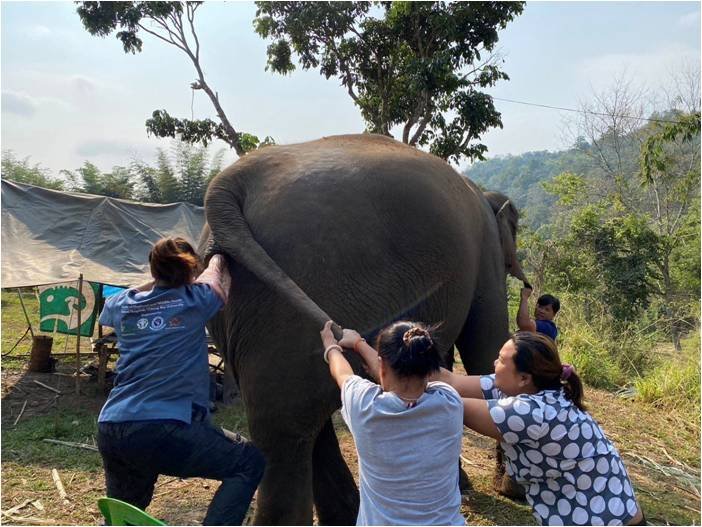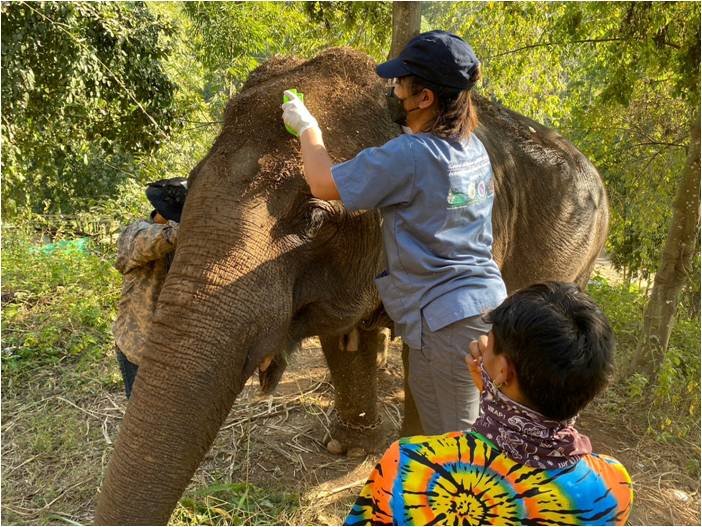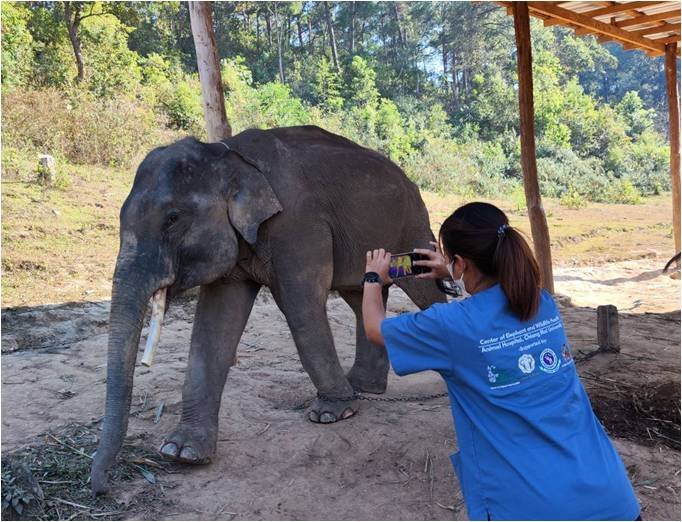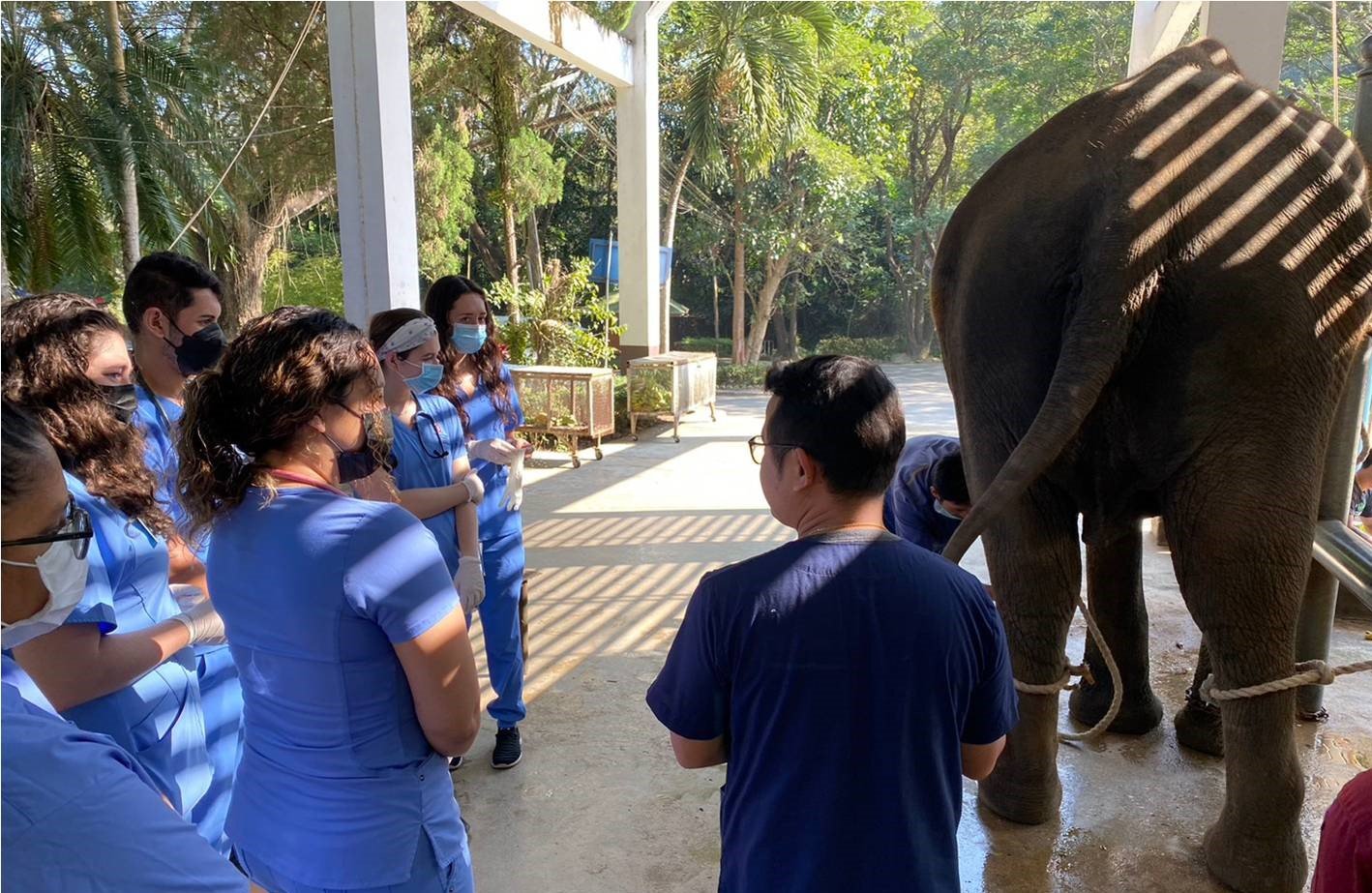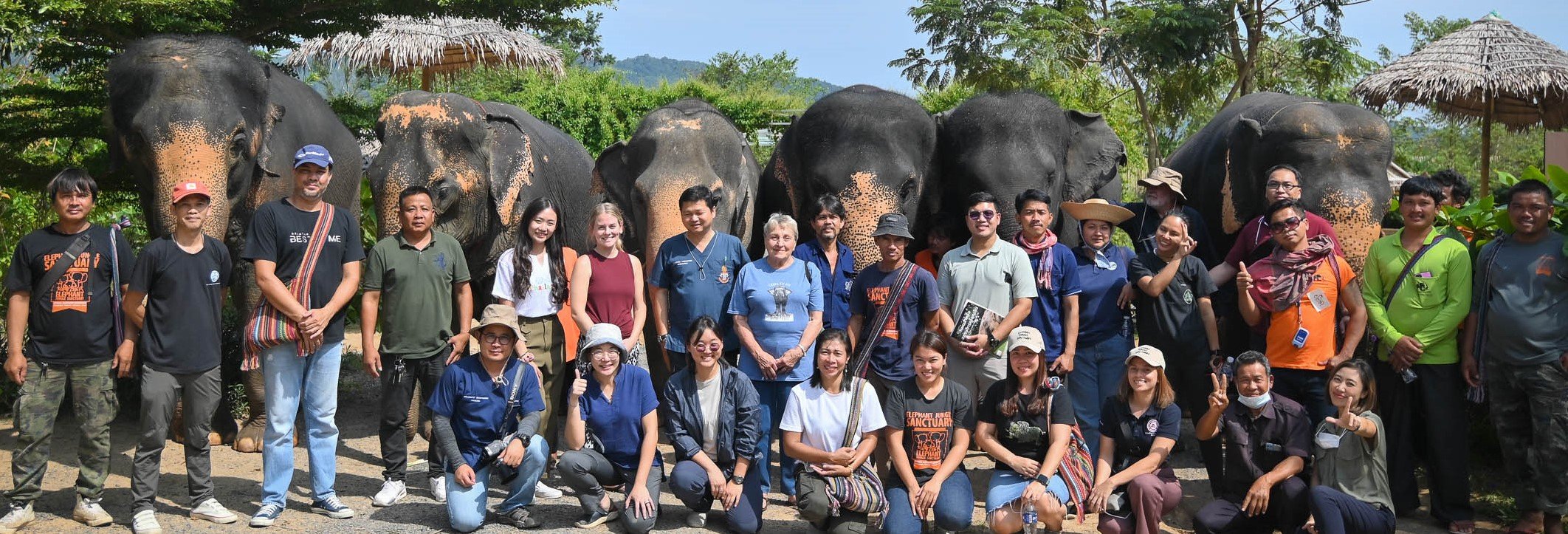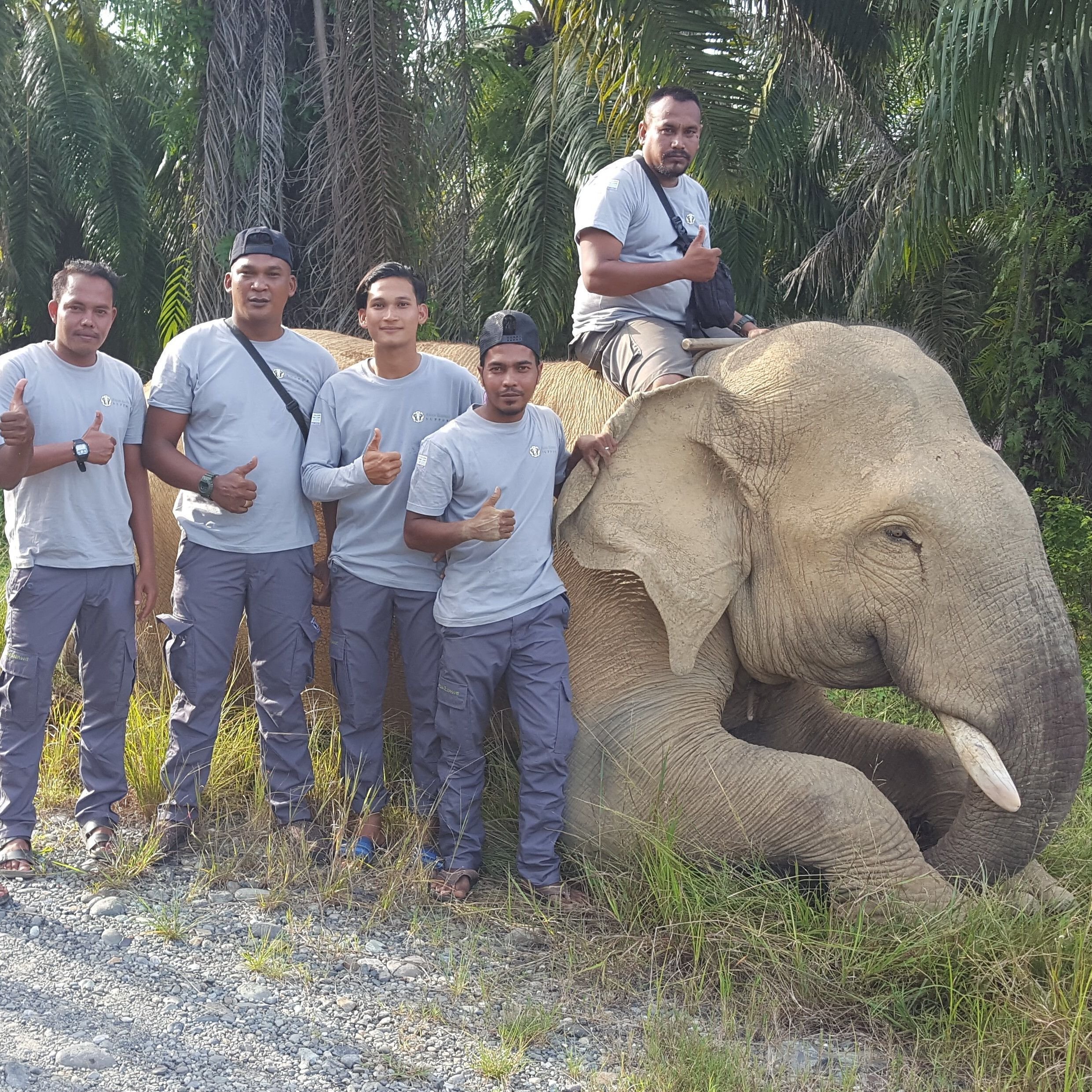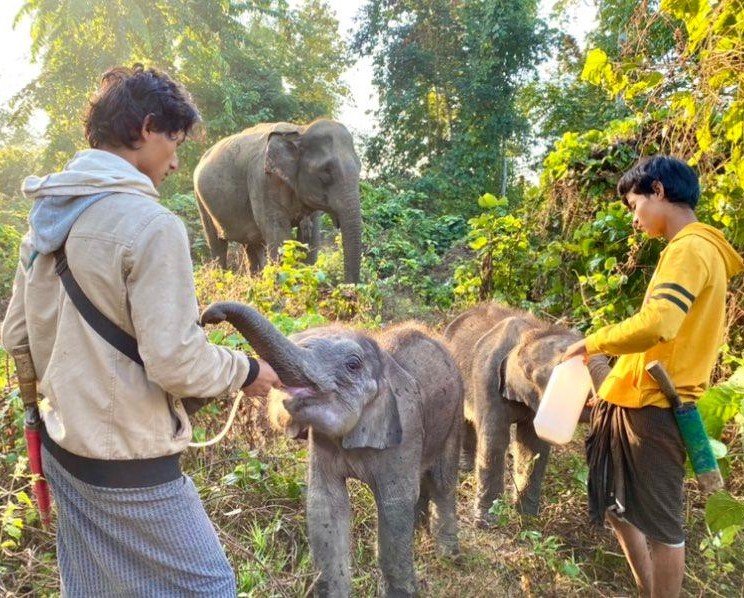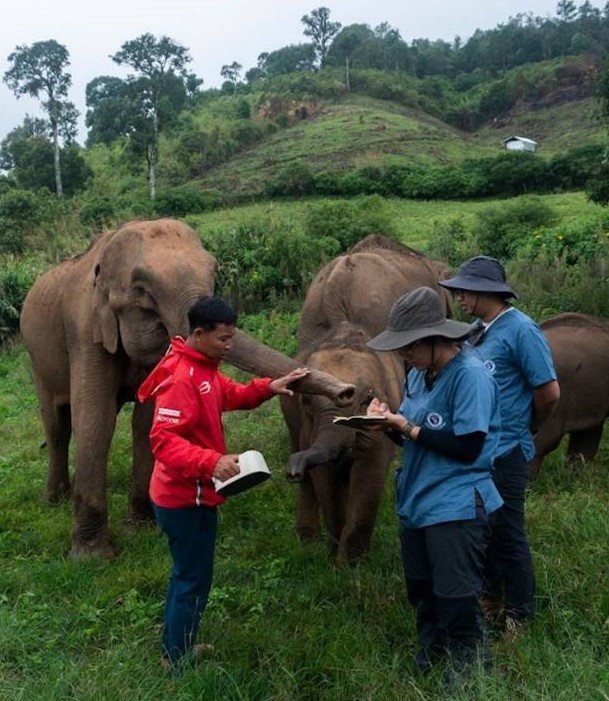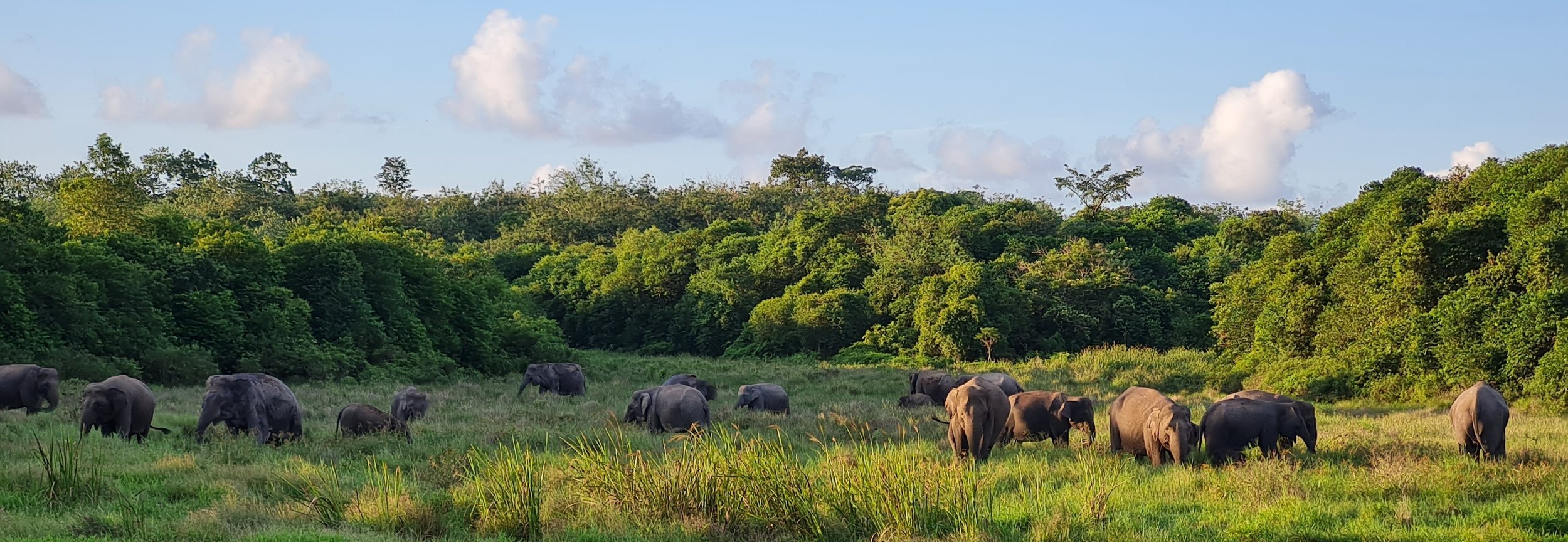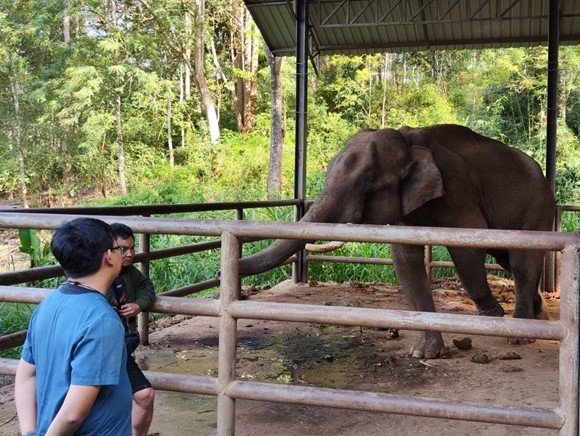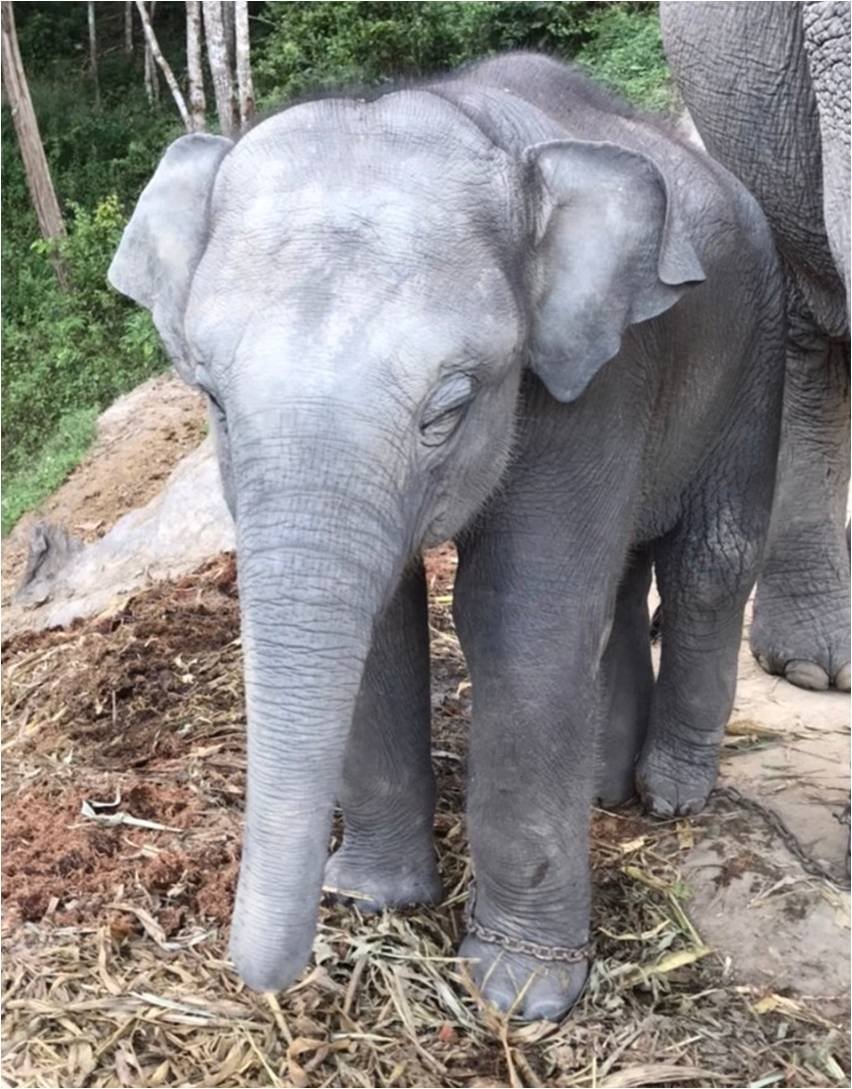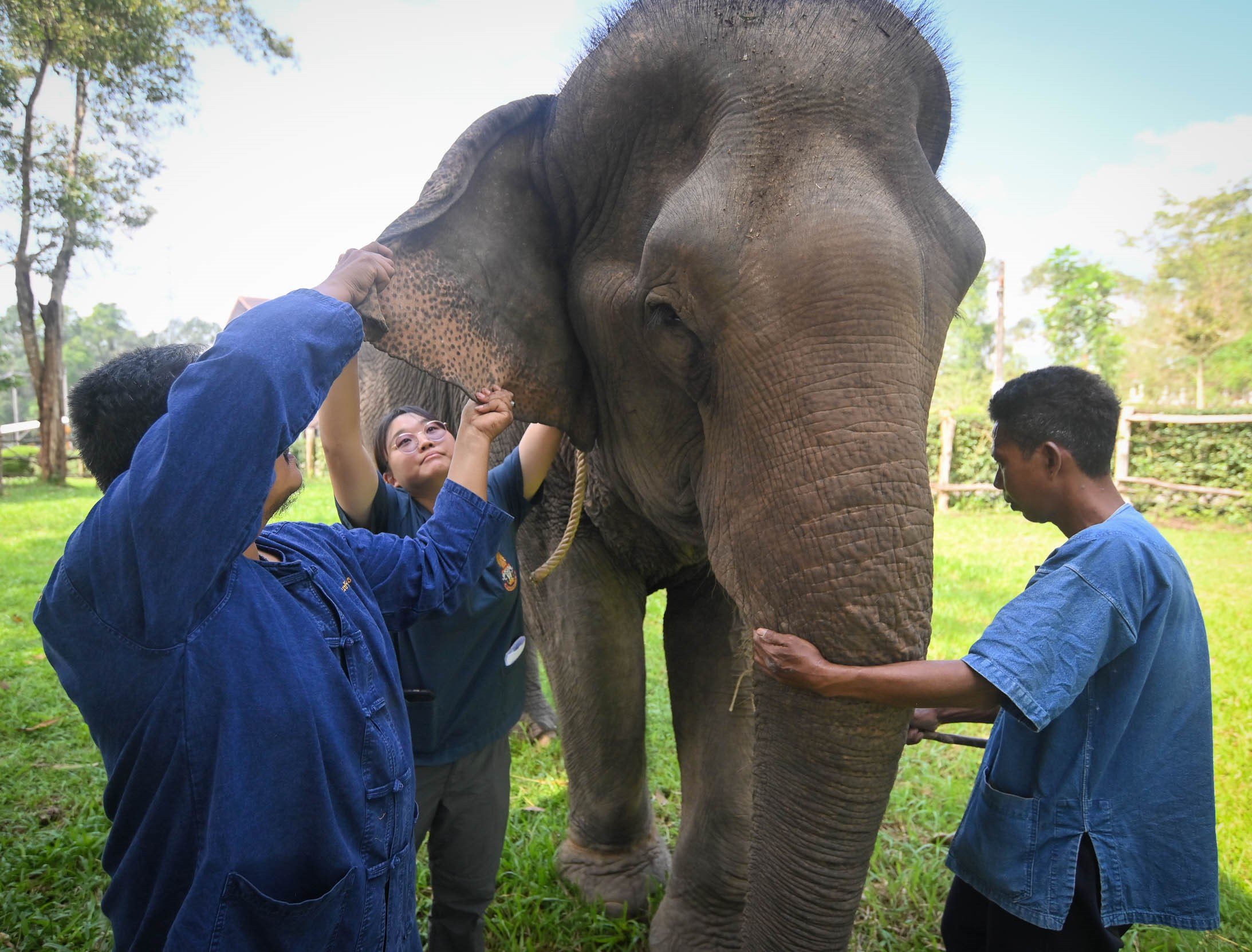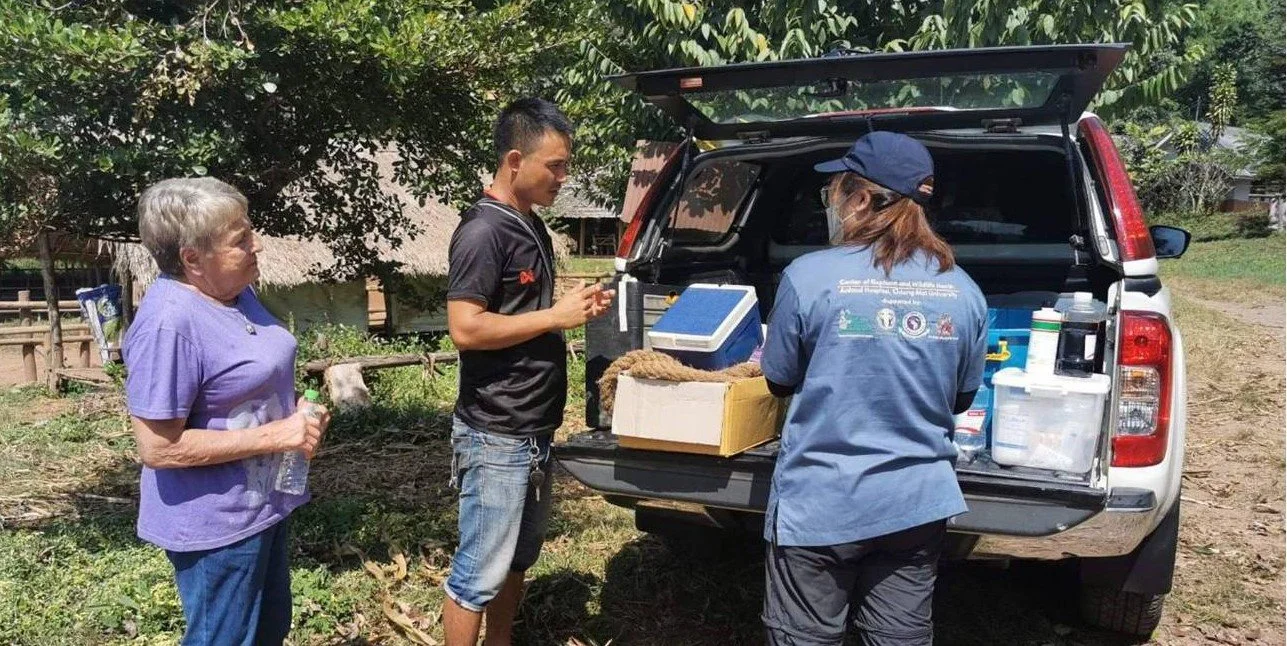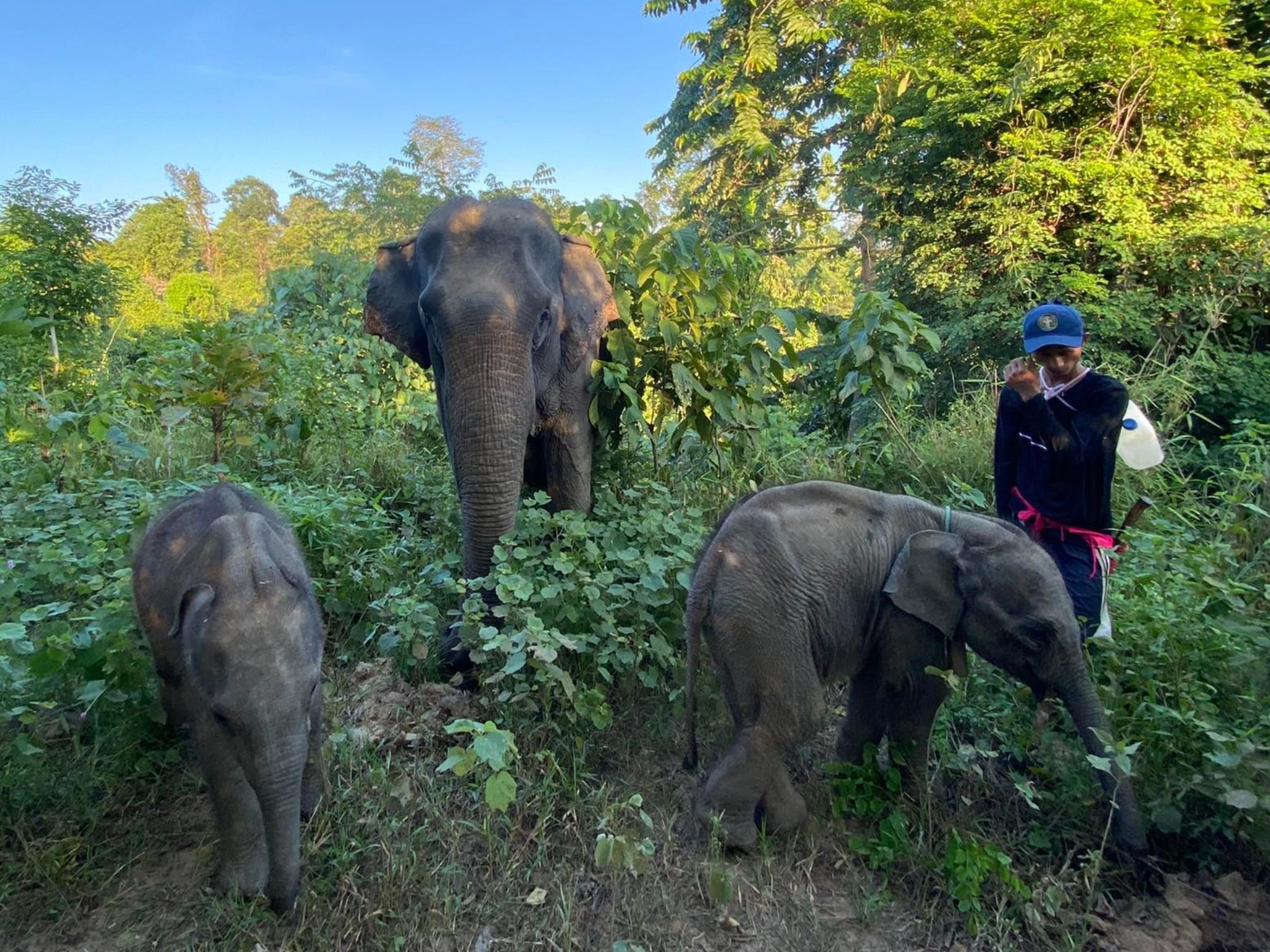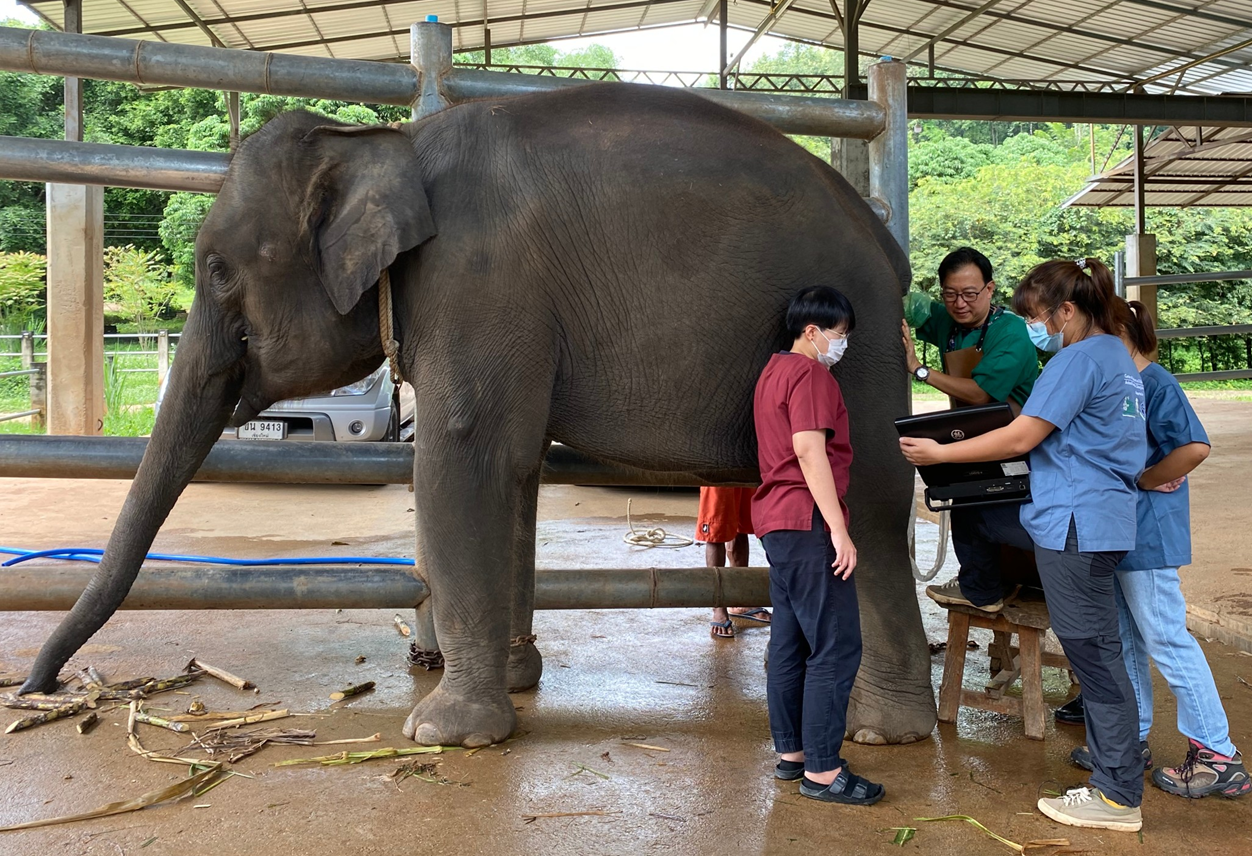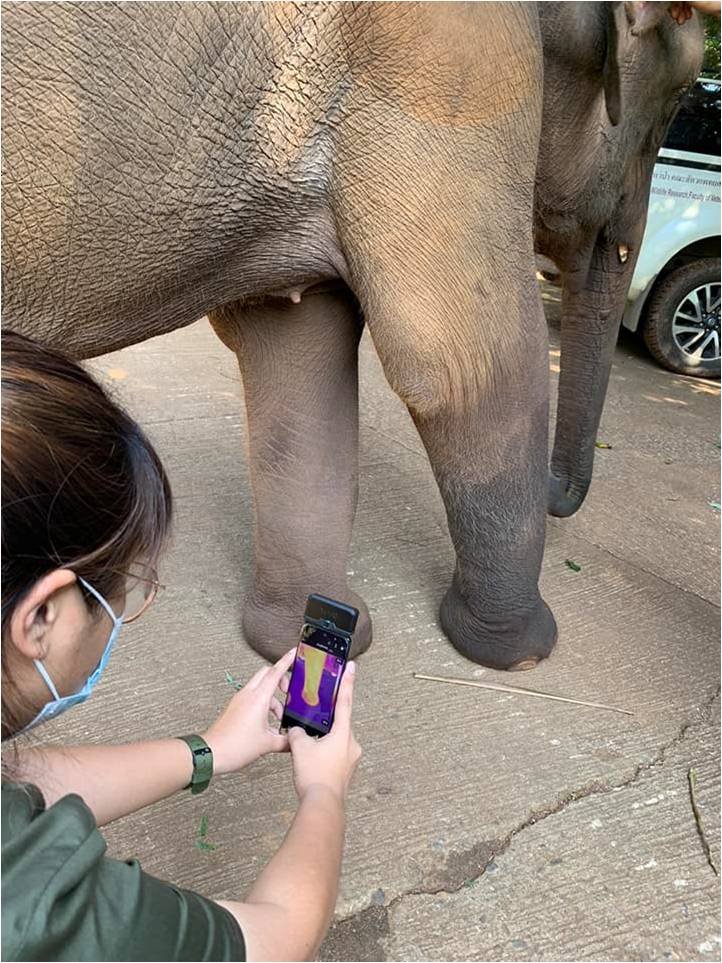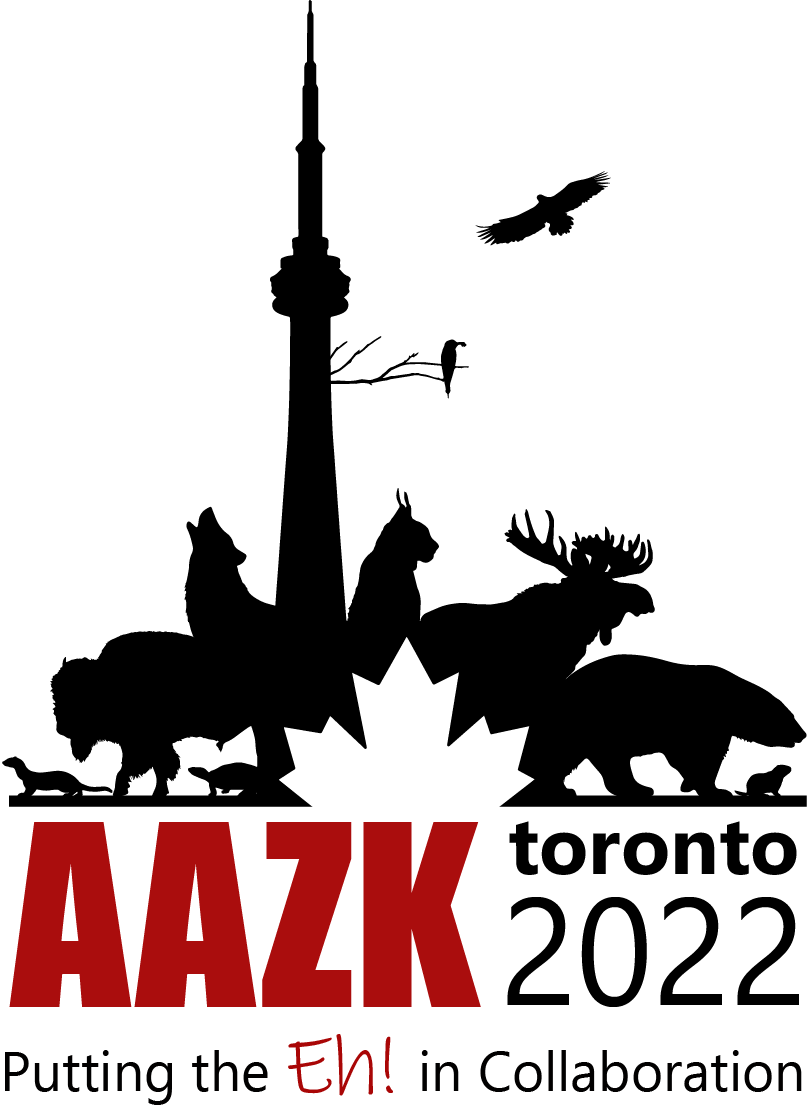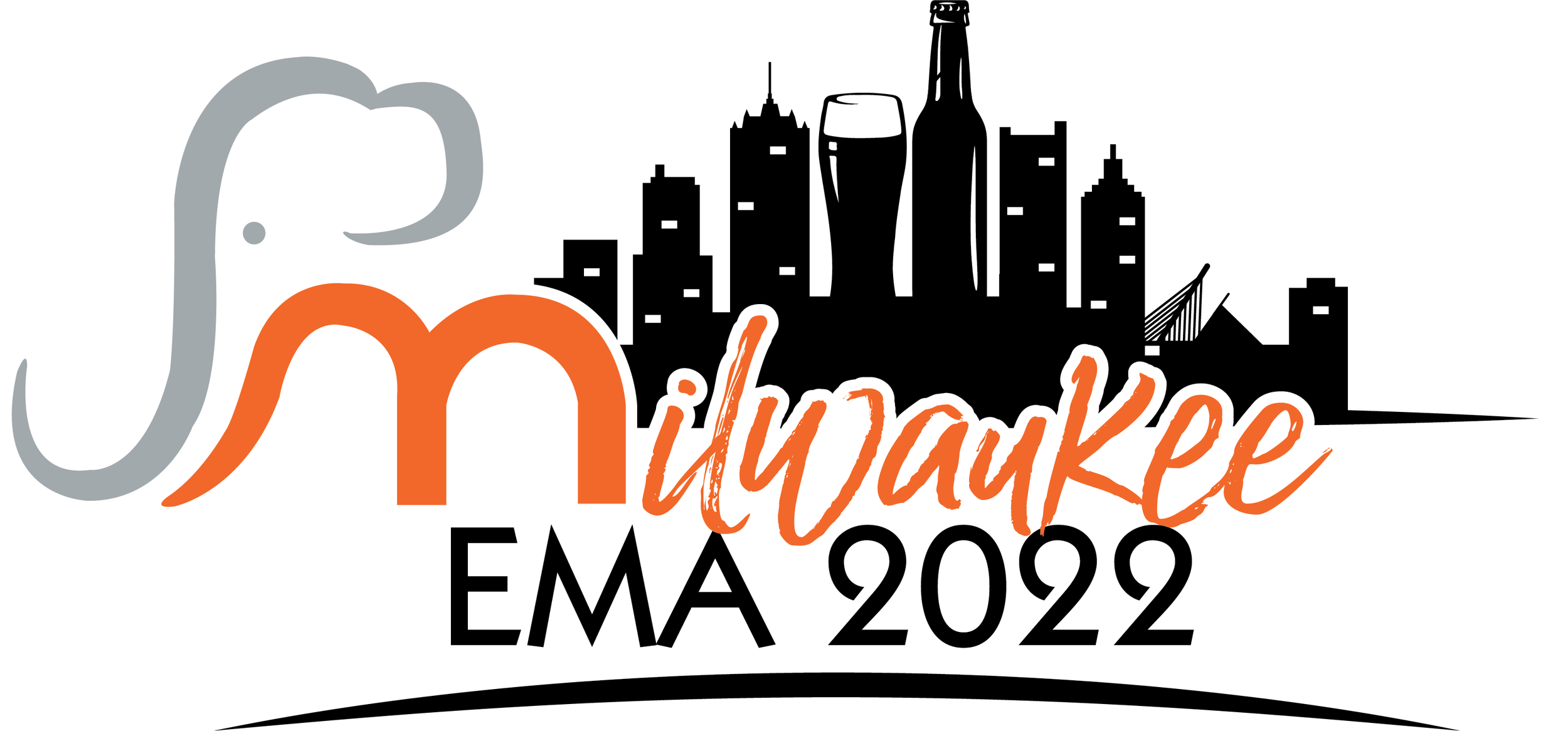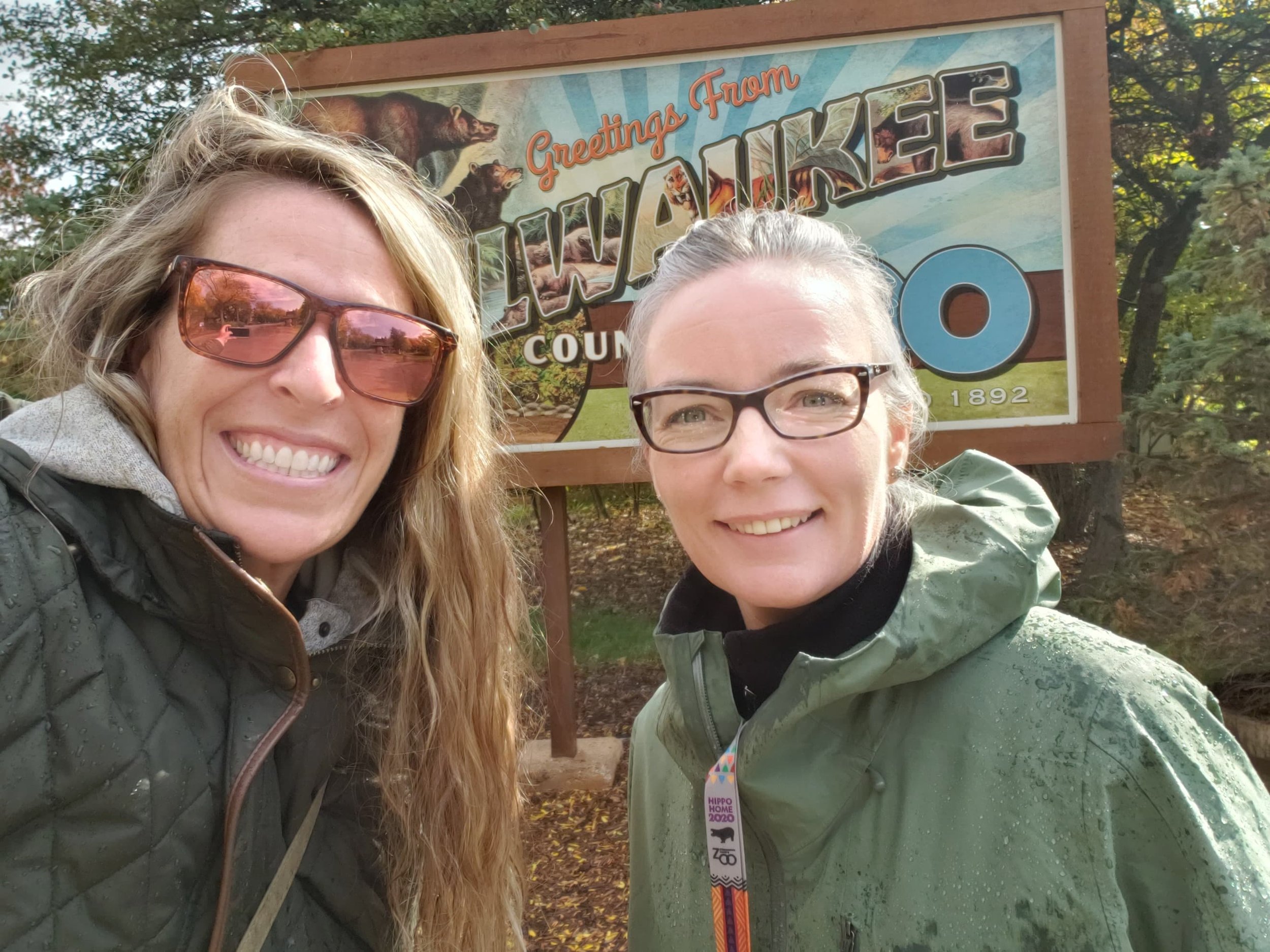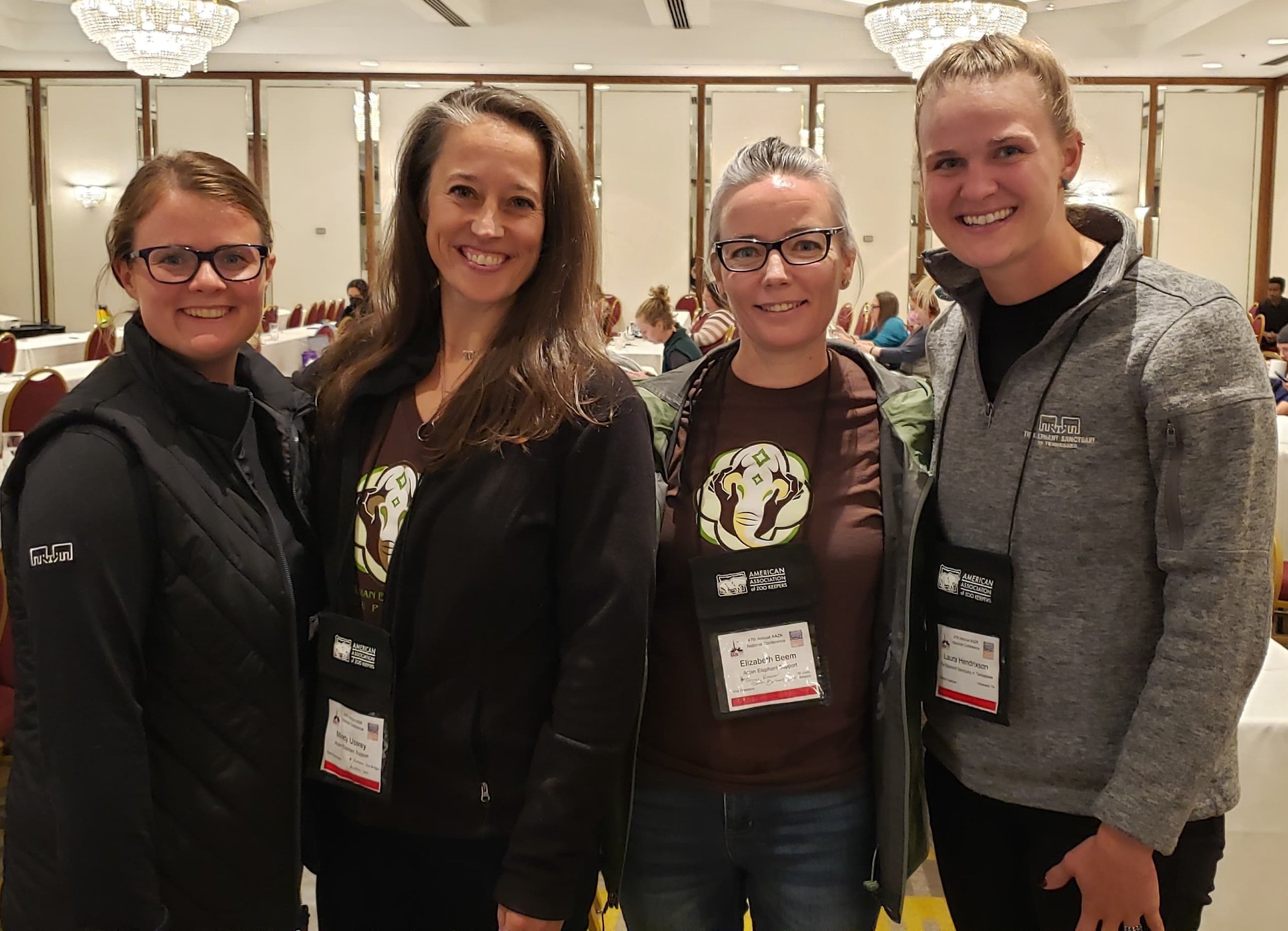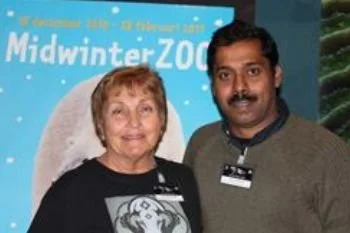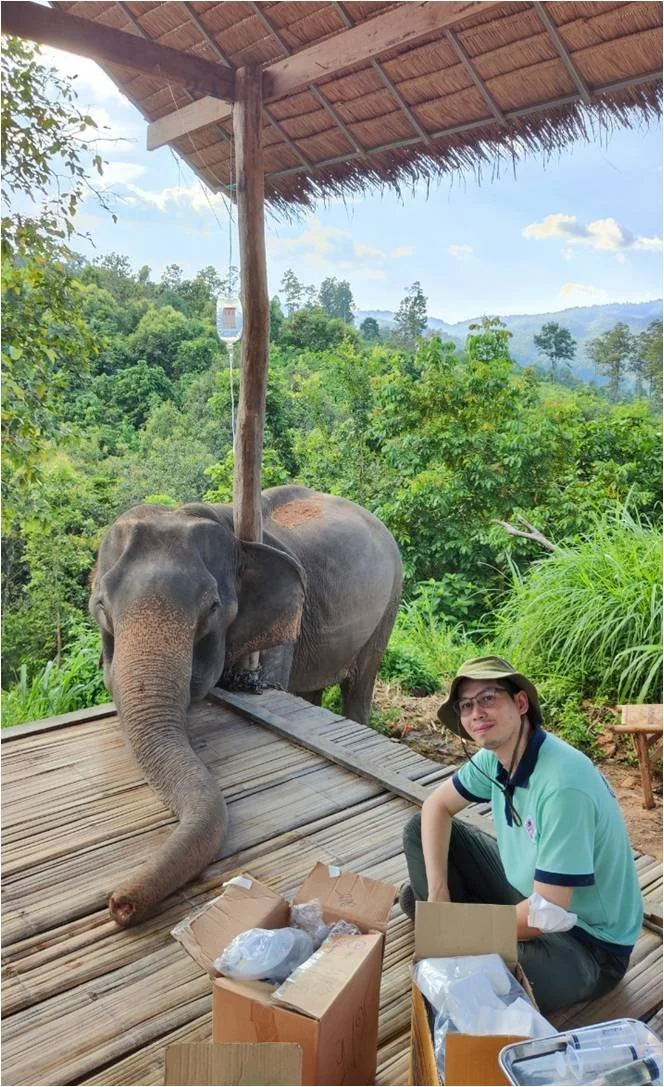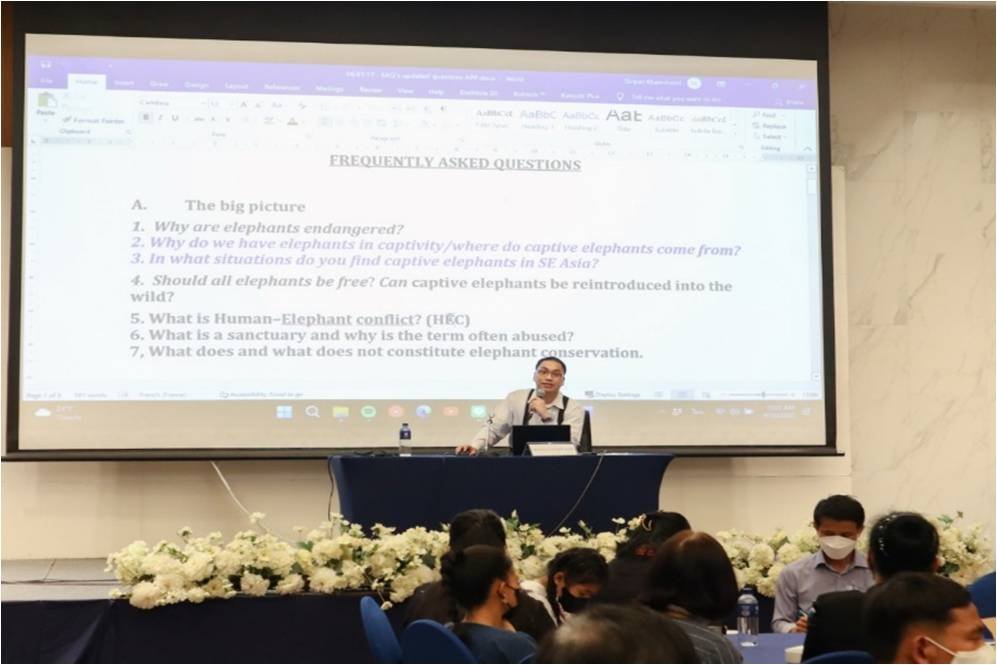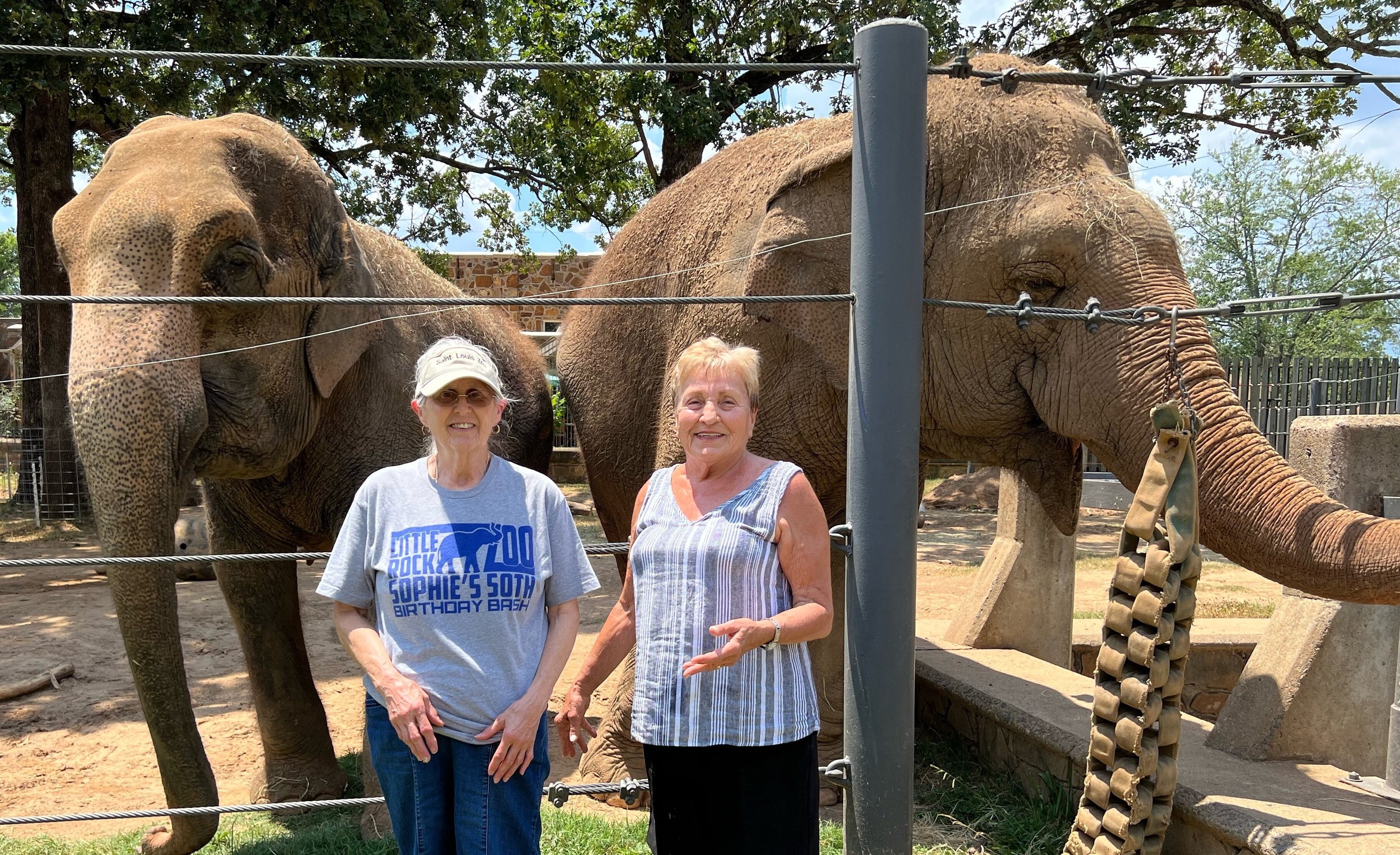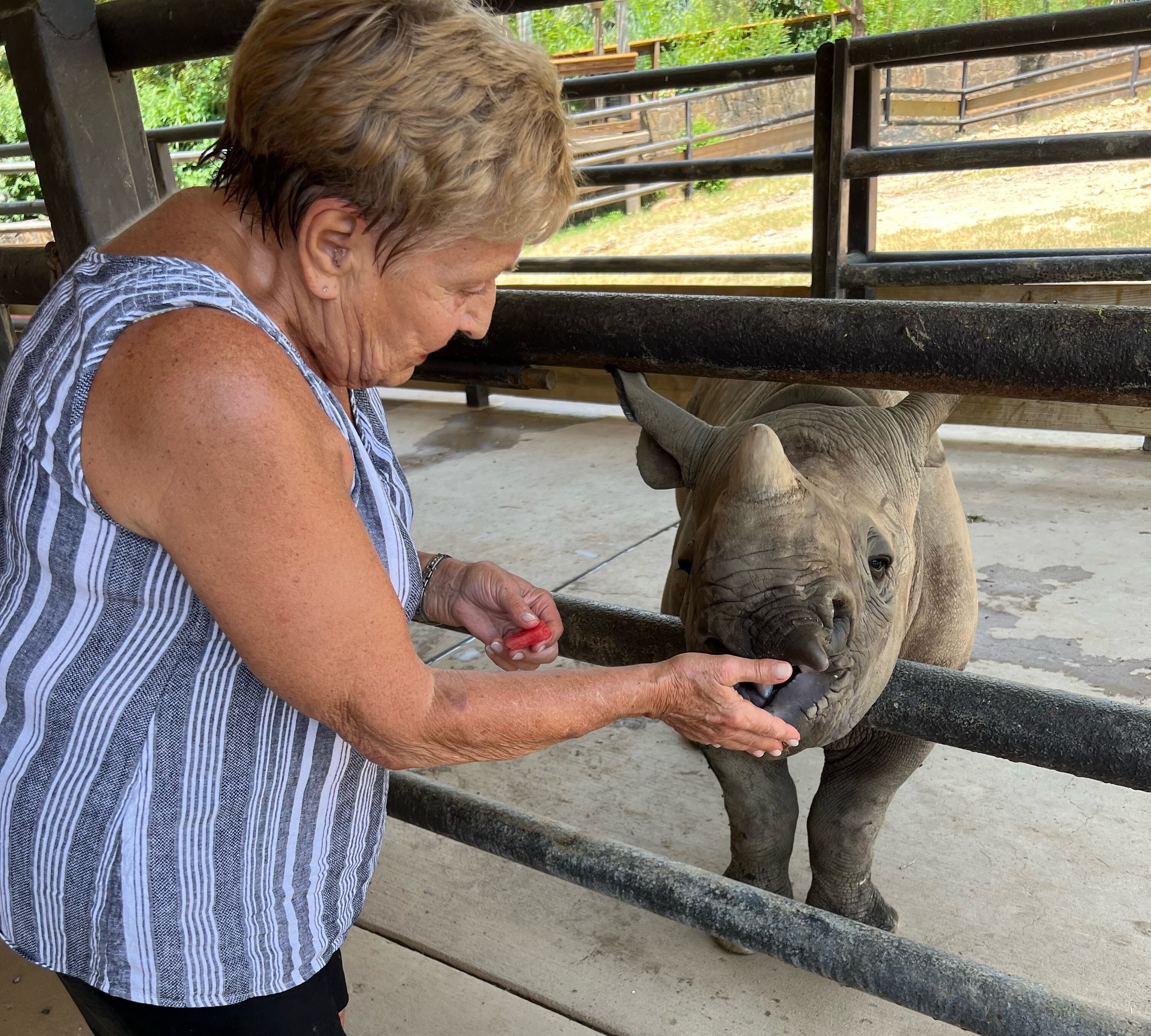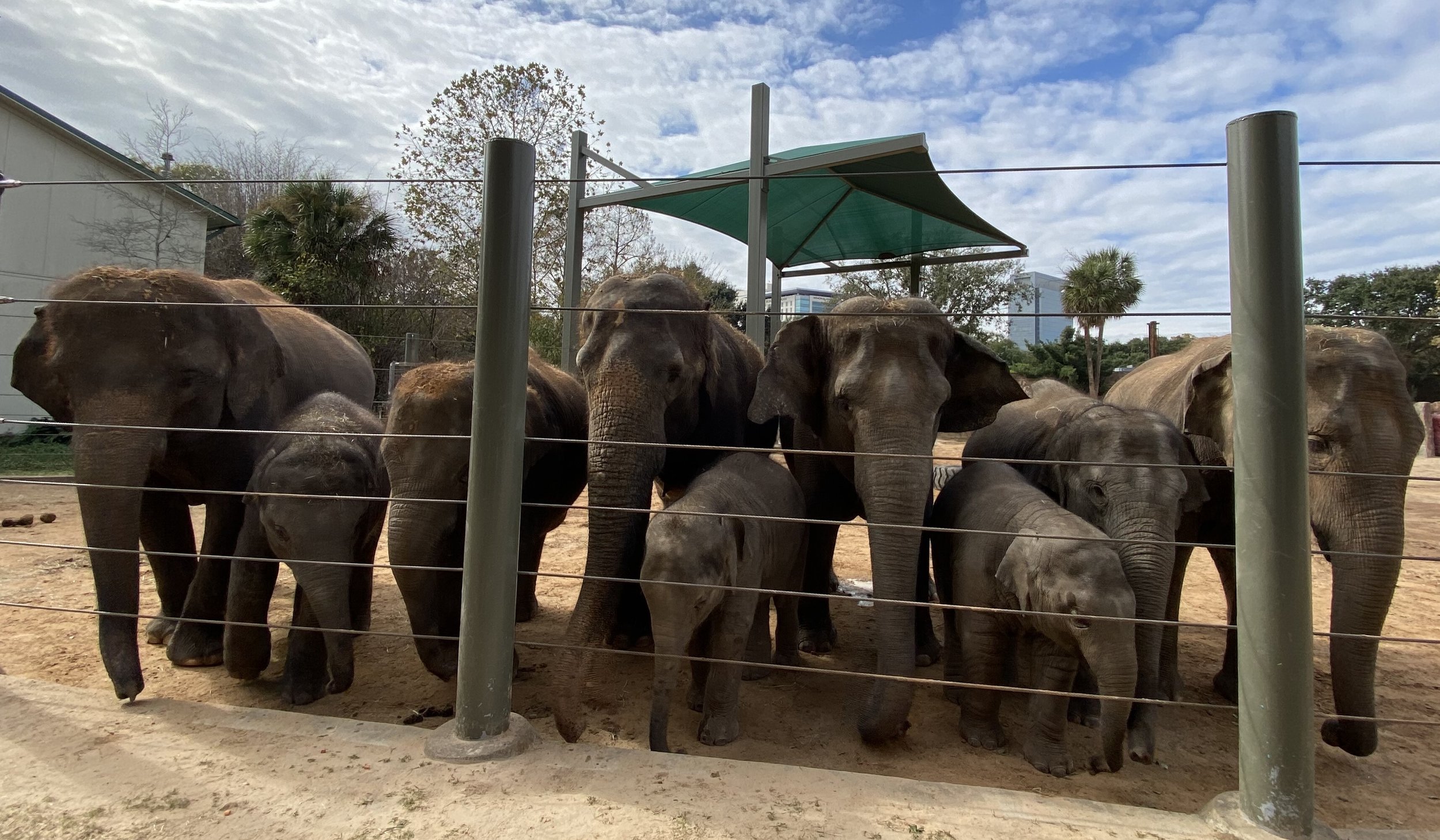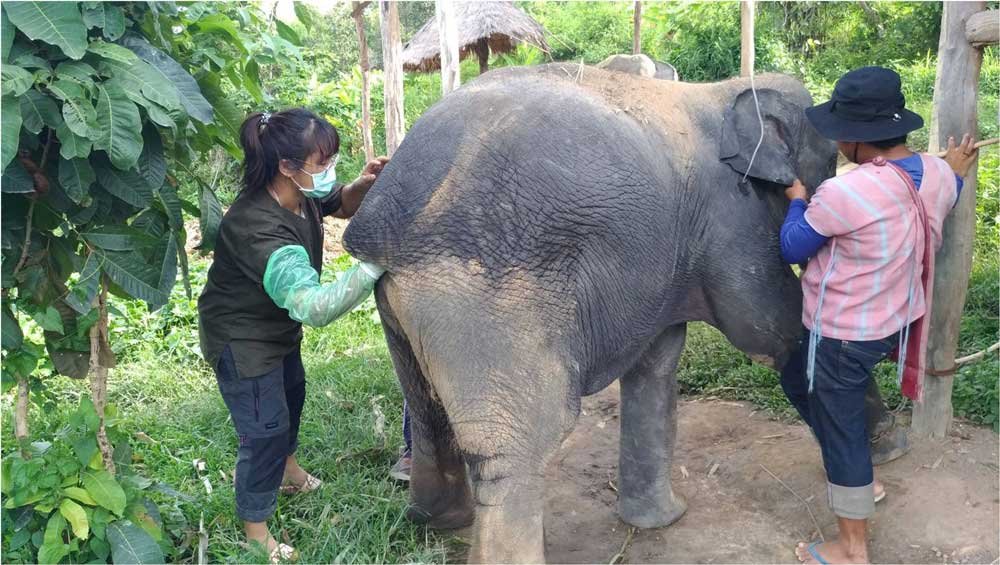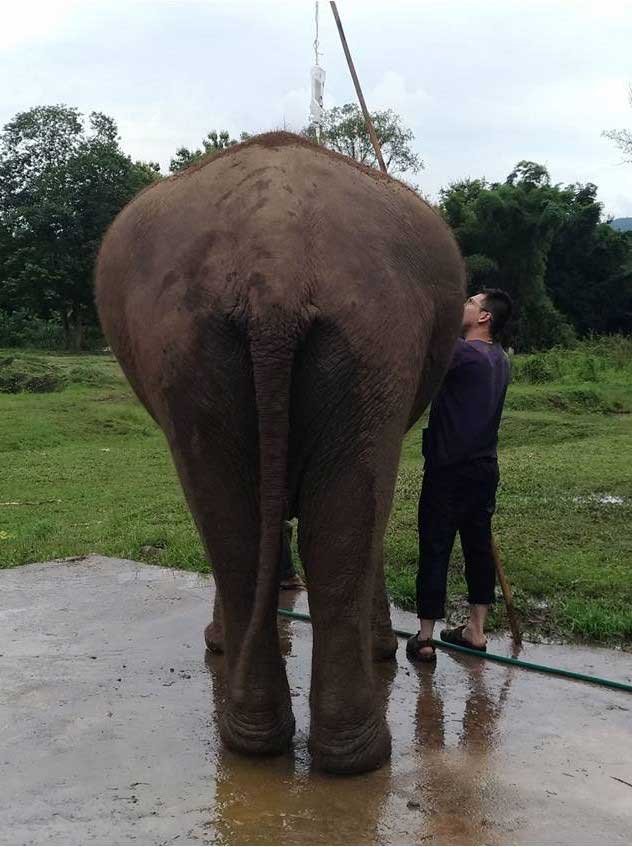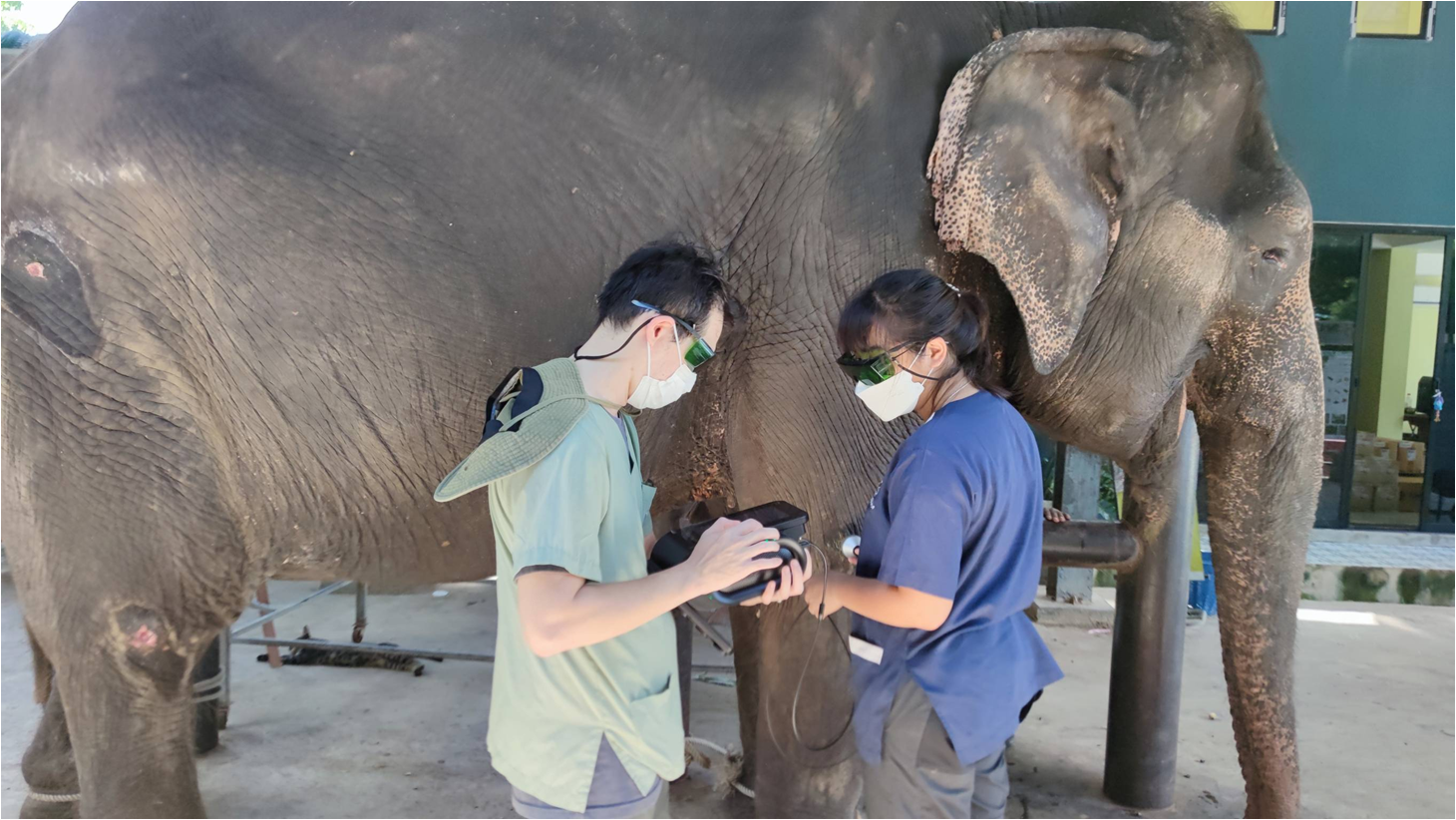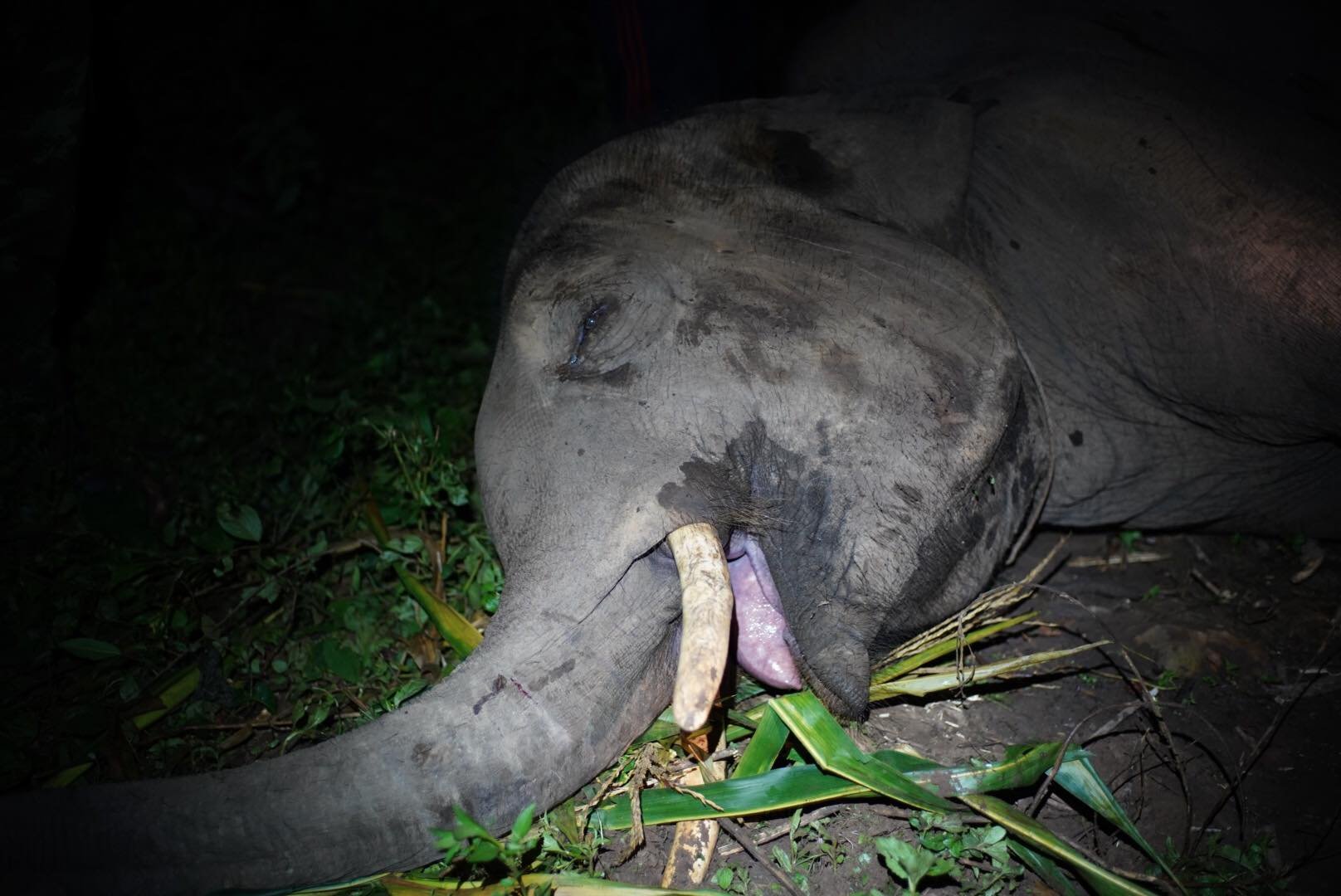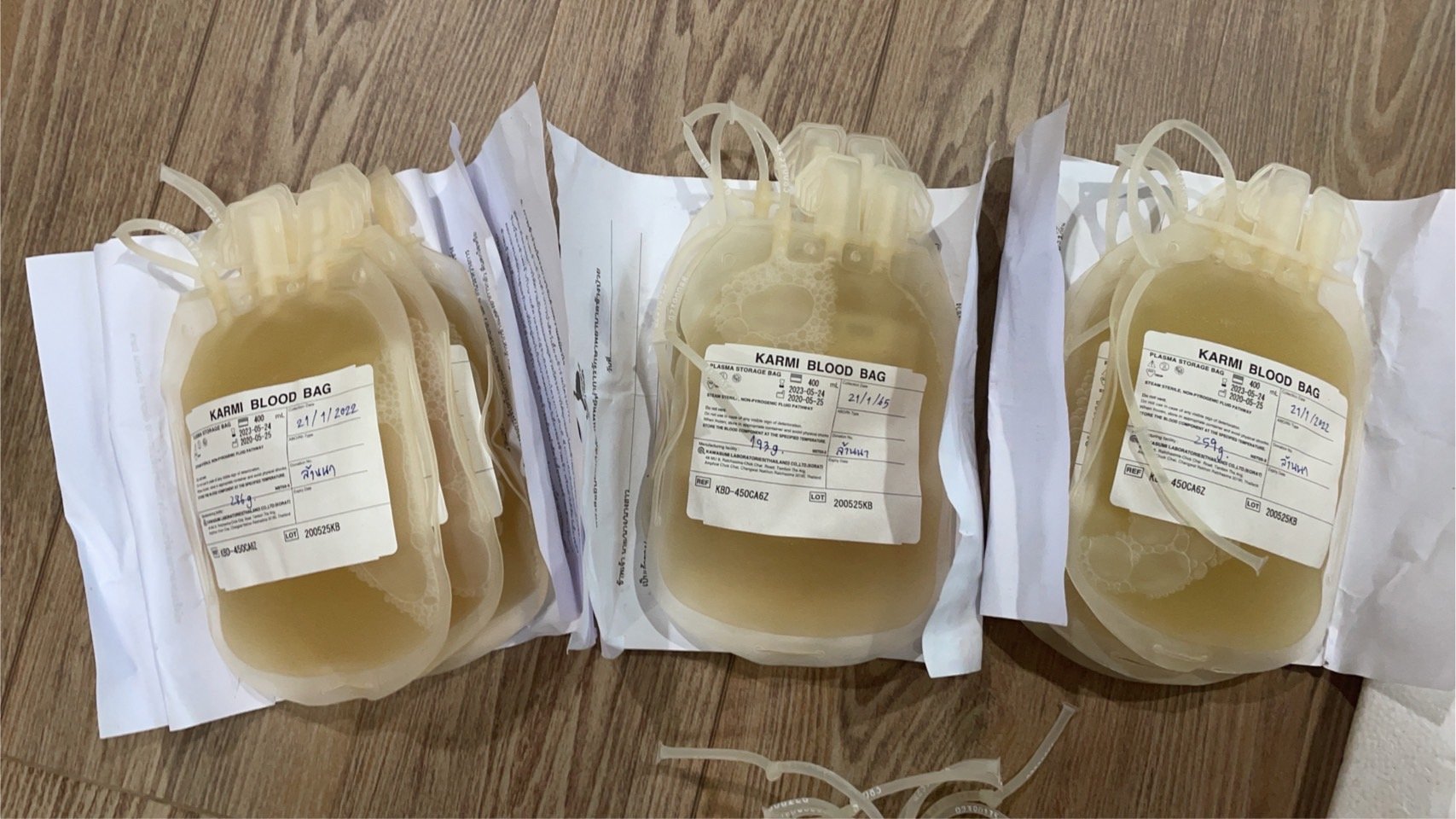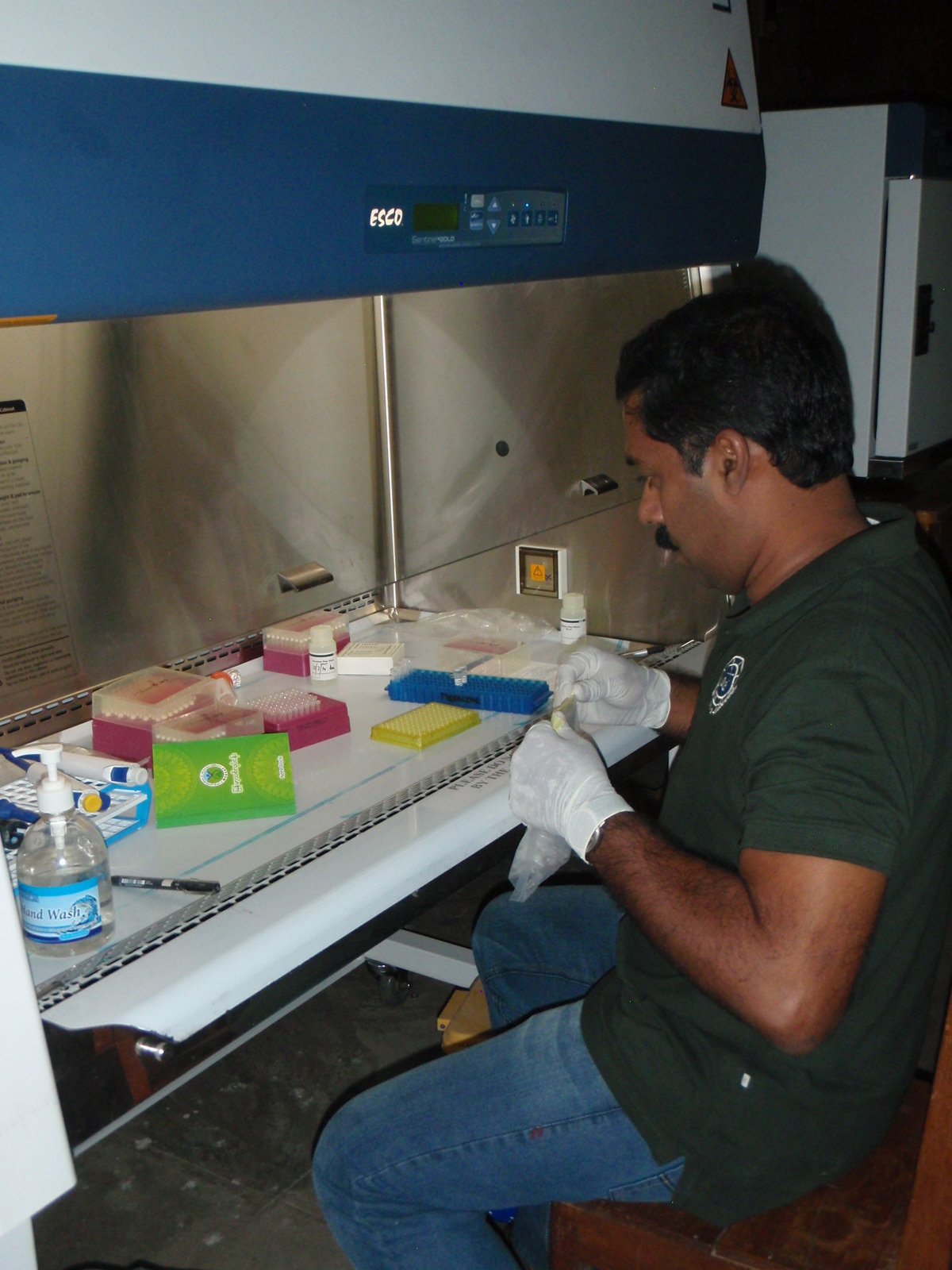With your generosity and the continued support of Woodland Park Zoo, our efforts help the Veterinarians from the Wildlife Ambulance Of the Syiah Kuala University Veterinary Faculty in Aceh, Sumatra provide routine healthcare to elephants and other wildlife. In 2022 the Wildlife Ambulance conducted a total of 55 field operations, each lasting from one-ten days (159 days in total). The most frequent activity was providing regular health care for a total of 59 captive elephants in 12 different locations in the provinces of Aceh and Lampung. These elephants participate in patrol units for forest monitoring and Human-Elephant conflict mitigation.Besides elephant health care, the Wildlife Ambulance also provided needed veterinary services to Wildlife Conservation Authorities for the GPS collaring of a wild elephant (1 case), translocation of wild elephants (5 cases), treatment of injured wild elephants (3 cases), and elephant post-mortems (2 cases).
We are grateful for the efforts of the Veterinarians of the Wildlife Ambulance who continue to care for endangered wildlife in Sumatra.
Chiang Mai University's Mobile Vet Clinic - January 2023
The beginning of the new year saw the Chiang Mai University Mobile Vet Clinic on the move from the Mae Tang to the Mae Wang districts. The entire month of January was spent visiting elephants with ailments ranging from gastrointestinal issues to skin ailments.
Several of the gastrointestinal issues that the veterinarians attended to were cases of colic, treated with anti-inflammatories, non-steroidal pain relievers as well as fluids and vitamins. Within a few days, those elephants were back to eating and defecating normally - a relief to the elephants and their caregivers, alike.
Elephant receiving fluids as part of treatment for gastrointestinal issues
One of the more serious cases of gastrointestinal upset from last month was on January 25, when the vet crew was called for a 46-year-old female elephant who was not eating or drinking, and presented with signs of bloat. Once the veterinary team got to the elephant and did an exam, it was discovered that the old girl was dehydrated, from eating soil and too many bananas. While her temperature was normal, she was found to have a slight distension in her abdomen. Fluids, vitamins and pain relievers were administered, as well as the recommendation to encourage walking, which helps to get the digestive tract moving. The mahouts were given more information by the team on what to feed their elephants - a diet high in fiber, like grasses, to prevent bloating. After several rectal enemas, more fluids and a lot of walking, the elephant was eating grasses and began to defecate normally.
Enemas performed to remove any feces that the elephant has been unable to pass on their own can provide fast relief in cases of colic
Another serious case, on January 2, was from a 50-year-old elephant experiencing a head wound. Upon arrival to the elephant, the veterinary crew saw a large, non-bleeding cut on the elephant’s forehead. The elephant had tried to self medicate by blowing dirt and grass on the wound, but she was experiencing pain and wouldn’t allow the veterinarian to treat the wound. Topical and anti-inflammatory medications were prescribed that the elephant owner could administer. A week later, the owner of the elephant called the veterinarians again saying the wound was worse. The elephant was transported to the Thai Elephant Conservation Center (TECC) hospital for further treatment, since the wound had now produced purulent material and had gotten larger and more painful. At the TECC the elephant could be in a more sterile environment, with additional people to help administer medication to help heal the wound. Oxygen therapy was also administered to prevent the spread of bacteria. The wound was reportedly fully healed, after a recheck of the elephant on Jan 27.
To end the month, the CMU crew visited a 6-year-old elephant with a swollen chin, which can sometimes be an indication of Elephant Endotheliotropic Herpesvirus or EEHV. However in this case, the calf did not show any other signs of EEHV, including depression, diarrhea or other facial swelling. A thermal camera was used to pinpoint the spot of swelling, which wasn’t painful to the calf and was concentrated on one side of the face. The veterinarian took blood samples to rule out EEHV, and administered vitamin C and anti-inflammatory medications. After a check, three days later, the young elephant’s chin was less swollen and the calf was acting normally.
Infrared camera is used to pinpoint the potential cause of facial swelling
As we were ringing in the New Year with friends and family, the veterinary team with the CMU Mobile Vet Clinic was hard at work providing life-saving treatments to Thailand’s elephants.
To support the efforts of the veterinarians and staff from the mobile unit, please visit www.asianelephantsupport.org/donate and become a monthly donor.
Routine Elephant check-ups on at Conservation Response Unit (CRU) Das Peusangan in Aceh
On the Road with Veterinarians in Sumatra
In October 2022, AES accompanied Dr. Riyan from our field partner Wildlife Ambulance, and a fellow Veterinarian, Dr. Rika from the Aceh Provincial Conservation Agency (BKSDA), as they performed routine check-ups on elephants at the Conservation Response Unit (CRU) Das Peusangan in Aceh (northern Sumatra).
Routine health checks like these consist of body condition and weight assessments, inspections of teeth and tusks/tushes, and providing needed medicines.
Also in October, AES followed our veterinary partner, the Wildlife Ambulance from the Syiah Kuala University Veterinary Faculty in Aceh, on their regular visit to check the health of the Elephant Response Unit (ERU) elephants in Way Kambas National Park.In addition to health checks, they provided any needed medicine such as de-wormers and checked elephant foot health.We are grateful for the efforts of Veterinarians, Dr. Riyan and Firdaus, from the Wildlife Ambulance who are dedicated to providing medical care for critically endangered Sumatran elephants and other endangered wildlife.
Myanmar Calf Update
If you followed AES's updates last year, you may remember the case of the calf born in Myanmar whose mother was unable to nurse him. Thanks to support from the Little Rock Zoo, AES was able to send funds to provide milk and supplemental food to ensure the calf's survival.
We were happy to receive these latest photos from our friends and partners at the Life of Oozie Village Ecohut this past week and hear that the calf and his adoptive mother and sibling are all thriving.
We honestly can't think of a better update to start off the New Year than this!
Chiang Mai University Center for Elephant and Wildlife Health Hosts Students from Ohio State
On December 27th & 28th, veterinarians and staff from the Chiang Mai University Center for Elephant and Wildlife Health, including those from the Mobile Vet Clinic, facilitated a course for veterinary students from Ohio State University at the Elephant Hospital at the Thai Elephant Conservation Center.
Under the supervision of experienced veterinarians, this course provided instruction and hands-on practice in elephant-medicine, including physical examinations, wound management and geriatric care.
It was an amazing opportunity for students to learn from some of the leading experts in elephant veterinary care in Thailand.
Asian Elephant Support's 2022 Annual Report
a Year in Review
Huay Pak Kood Elephant Homecoming Festival Buffet - Thailand, March 2022
Continuing the slow return to what seems more normal, 2022 offered AES the opportunity to fund some in-person workshops, the first since the pandemic. However, in Asia, field research remains very quiet and emergency needs continued throughout the year. Without you, we would not have been able to provide the continued emergency support that still is needed while Asian tourism slowly begins to pick up. Together, we were able to keep providing medical care and supplies, as well as funding some returning educational and community projects. As we prepare for the New Year, we would like to share some of our accomplishments of 2022.
Major Accomplishments for 2022
In April, our annual California Pizza Kitchen (CPK) fundraiser broke all previous records – a great sign people are ready to venture out again and do so to help us help Asian elephants. This year we dedicated proceeds from Pizza for Pachyderms (which also included a local pizza parlor in Memphis where there is no CPK) and a Painting with a Twist Event in Buffalo (again for lack of a CPK) to Elephant Endotheliotropic Herpesvirus (EEHV) care and research in Asia. To date funds have been distributed to Chiang Mai University’s Mobile Vet Clinic in Thailand for treating such cases, and to Dr. Arun Zachariah in India for his continuing research on this disease.
Staff from St. Louis Zoo at one of 30 California Pizza Kitchen restaurants nationwide that participated in AES's annual Pizza for Pachyderms fundraiser - April 2022
At the end of October, AES partnering with the Association of Zoos and Aquariums Saving Animals From Extinction (AZA SAFE) – Asian Elephants program, funded two 2-day workshops for southern Thailand mahouts. Each workshop included over 40 mahouts (elephant caregivers) and owners with the first day consisting of presentations and discussions and the second day at each location’s nearest elephant hospital for hands-on learning. AES President, Linda Reifschneider, and AZA SAFE – Asian Elephants Committee Member, Rachel Emory, both participated, with Rachel giving an excellent presentation on EEHV and the importance of early detection and training for treatment. Our thanks to Dr. Khajohnpat Boonprasert from the Thai Elephant Conservation Center and his staff for a very successful and worthwhile educational opportunity.
Participants and facilitators at two 2-day workshops focused on developing the knowledge & skills of Mahouts in Southern Thailand - October 2022
Additional 2022 Funding
Provided health care for elephants living in remote areas of Laos with ElefantAsia.
Committed annual support to Dr. Christopher Stremme’s veterinary work at the Conservation & Elephant Response Units in Sumatra.
Continued support to Thailand’s Chiang Mai University’s Mobile Vet Clinic’s salary for an additional veterinarian.
Supported the GPS collaring of wild elephants in Way Kambas National Park, Sumatra, including the effort to collar two additional elephants as well as the re-collaring of the original four elephants.
Provided 95 sets of durable work clothes for Sumatran mahouts: 1 short sleeve shirt, 1 long sleeve shirt and 1 pair of cargo pants.
Supported a proven educational program inspiring Human-Elephant Coexistence Among Community Through Street Theater in India.
Secured emergency funding for formula and supplements for a calf born to a female who is unable to nurse her infants in Myanmar.
Partnered with the Little Rock Zoo, providing supplies and a chipper to process fodder for several elderly elephants in Myanmar.
Funded travel and accommodations for Myanmar veterinarians to attend a critical workshop at the Thai Elephant Conservation Center as well as some needed medicines.
Supported a workshop for educators to promote Human-Elephant Coexistence in India and Nepal.
Provided money for emergency repairs to the Sri Lanka Wildlife Conservation Society’s Ele-Friendly Bus in time for school classes resuming in January. This investment is critical for children who walk to and from classes on the same roads where wild elephants are often viewed, helping to lower injuries and death due to Human-Elephant Conflict.
Collaborated with the Golden Triangle Asian Elephant Foundation to support Human-Elephant Conflict mitigation in the Khao Yai Forest Complex, an opportunity for positive investment for the wild elephant population of Thailand.
Looking Forward to the New Year
The unique ability of Asian Elephant Support to act quickly with emergency funding allowed us to continue helping those we work with as efficiently as possible. While our income remains lower than we would like, being a totally voluntary nonprofit affords us the ability to put each dollar donated toward critically needed assistance in range countries. It is the support of our donors – YOU! – who made it possible for us to be there, when needed, during this year. Both our repeating donors and our new supporters, have our sincere appreciation – and we hope you will be with us in 2023. And, please tell your friends about us. There is still a lot to be done!
Please donate today & help us be prepared for the challenges of 2023!
Elephant Response Unit monitoring a herd of wild elephants in Sumatra - 2022
Chiang Mai University's Mobile Vet Clinic - November 2022
Dr. Eye, and the staff from the Chiang Mai University Mobile Vet Clinic continued their mission for Thailand’s elephants throughout the month of November. And, once again, they had a very busy month.
One of the services that AES is proud to support is the continued education that the CMU Mobile Vet Clinic provides to the elephant owners and mahouts in northern Thailand.
Dr. Eye with calf experiencing gastrointestinal issues
In early November, Dr. Eye visited an elephant camp in Mae Wang. The elephants here had come back to Chiang Mai from rural towns with the resurgence of tourism to the area. Upon visiting these elephants, the CMU team found that some of them were experiencing an imbalance in their nutrition and also needed treatment for internal parasites. The team took time during this visit to educate the mahouts and owners on proper dietary management for their elephants.
Member of the CMU Team consulting with a mahout about elephant diets
That trip was followed by a continuing education opportunity for the veterinarians, themselves. They attended a Neurological and Musculoskeletal System Examination Workshop from November 10-11.
Historically it has been difficult to diagnose the cause of nervous and musculoskeletal issues in elephants due to limited knowledge and diagnostic issues. During this conference, the team learned about disorders, procedures and diagnostic tools they can use, as well as how the issues progress and how they can be treated.
The remainder of November included visits and the successful treatment of various health issues in the Mae Wang area. Issues ranged from skin and foot problems, to gastrointestinal and viral problems.
Elephant Endotheliotropic Herpesvirus, or EEHV, is a serious and life threatening virus that is found across Asia in both wild elephants and those in human care. The CMU veterinary team continues to fight this disease in Thailand as well. Unfortunately, on November 22, the Mobile Vet Clinic had to treat another calf with suspected EEHV.
This one-year old calf was reported to have facial swelling and was lethargic for several days. Upon examination, it was found that the calf did have a swollen face, fever of 100° F, as well as a slightly red tongue - all symptoms of EEHV. The calf was immediately given steroids, antiviral medication and antioxidants so he could be transported to the elephant hospital at the Thai Elephant Conservation Center. Unfortunately, despite the best efforts from all of the veterinary teams involved, the calf passed away on November 27.
Dr. Eye and the CMU Mobile Vet Clinic are constantly hard at work, caring for Thailand’s elephants all year long. To show your support to their efforts, please visit www.asianelephantsupport.org to make a contribution to their efforts.
Thailand Southern Mahout Workshop 2022
Planned and Presented by the National Elephant Institute, Lampang. Funded jointly by Asian Elephant Support & AZA SAFE – Asian Elephant
This past summer, Dr. Khajohnpat Boonprasert, aka “Dr. Yeaw”, from Thailand’s National Elephant Institute approached AES about hosting educational workshops in southern Thailand for the mahouts at the various tourist venues in that area. As plans developed, we reached out to Rachel Emory from Oklahoma City Zoo and Adam Felts from Columbus Zoo, both members of the AZA SAFE – Asian Elephant Committee. AES was delighted when AZA SAFE decided to co-sponsor these events and Rachel also agreed to attend and present about Elephant Endotheliotropic Herpesvirus (EEHV).
Mahouts attending the lecture portion of the workshop
Rachel Emory from AZA SAFE lectures on the importance of early detection and training for treatments in EEHV cases
Two, two-day workshops were held. The first, in Krabi, hosted 39 mahouts, and the second, in Phang Nga welcomed 47 mahouts and owners. The first day consisted of papers and an interactive session. The second day was hands on, for the Krabi workshop at the Krabi Elephant Hospital, and for the Phang Nga workshop at the Southern Thai Elephant Foundation.
Mahouts participated in lectures and hands-on training throughout the workshops
AES President, Linda Reifschneider, also attended and was impressed with the attention the mahouts showed to both the presenters and during the hands-on sessions. There was note-taking and very little phone fiddling. The attendees were truly there to learn, and each was given a sturdy and attractive day bag along with a 165-page booklet covering all the rules and regulations concerning Asian elephants in Thailand.
Dr. Yeaw compiled this brief video, sharing some of the highlights from the workshops. Click here to watch.
Upon completion of the workshops, Linda visited the Elephantstay program in Ayutthaya and had the opportunity to catch up with Ewa and Michelle and see some of the destruction of the third flooding this area had experienced this year. Much has been cleared away, but these cleanups never get easier with practice.
Linda (2nd from left) with Lexie, Michelle and Ewa with elephant, "Rumruary", from Elephantstay Thailand
Linda on a ride-along with the CMU Mobile Vet Clinic
Then Linda was on to Chiang Mai for several days of hitching a ride with the Chiang Mai University Mobile Vet Clinic veterinarians. Both the vehicle donated by AES in 2019 and the continuing coverage of one veterinarian salary has made it possible for elephants, returned to their home villages during the pandemic, to continue to get not only emergency care for sickness and injury, but also preventative medicine to keep them healthy. And every visit by the veterinary team was also an educational moment for those caring for the elephants as well as receiving any needed medical supplies. These excursions also afforded Linda the opportunity to visit with some old friends and definitely make some new ones.
During the time in Chiang Mai, one day Linda headed to the Thai Elephant Conservation Center in Lampang. A great opportunity to see Dr. Yeaw once more and the work he and the staff do there. The visit also allowed for a visit with Richard Lair, AES Advisor, and the man who knows how to order a great Thai lunch for all!
Linda with AES Advisor, Richard Lair
Linda with John Roberts from the Golden Triangle Asian Elephant Foundation and Family
Linda’s last stop was in the Chiang Rai area, known for the Golden Triangle, where the Thailand, Myanmar and Vietnam borders come together. No shopping this time, but a great opportunity to catch up with John Roberts of the Golden Triangle Asian Elephant Foundation. AES has partnered with GTAEF in the past and will be participating in a program addressing Human-Elephant Conflict in some of Thailand’s protected areas with them in the future.
Every trip to Thailand is as much a learning experience, as it is reconnecting and networking. Elephants are really big animals, and the challenges – and opportunities those challenges afford – are also quite substantial and the reason we are Asian Elephant Support.
Please remember that we are a totally voluntary nonprofit - all Directors pay their own travel and other expenses related to being a director, as well as an annual financial contribution. Every donation made by our supporters goes to elephant programs and efforts! Thank you to everyone who has made educational events such as the Thailand Southern Workshop happen. If you would like to help sponsor more events like this, the continuing work of the CMU Mobile Vet Clinic or upcoming projects to support Human-Elephant Coexistence, please Donate Today!
AES Sponsors Thailand Regional Workshop
From October 31 - November 3, 80 mahouts from Southern Thailand gathered to participate in a regional workshop coordinated by Thailand's National Elephant Institute and sponsored by Asian Elephant Support and SAFE - Asian Elephant, a conservation group founded through the Association of Zoos and Aquariums here in the United States. Stay tuned for all the details about the workshop in our December newsletter!
We wish to thank all of our partners in the field in Asia for their ongoing work to support the care and conservation of elephants. And we wish to thank you, our supporters, for you commitment to elephants via donations and participation in other fundraising efforts! To donate or learn more about all the ways you can help, please visit our website.
Sumatran Veterinary Care & Orphaned Calf Update
We have two updates coming from Sumatra this month. The first comes from Bukit Barisan Selatan National Park. There, with our support, our veterinary field partner in Sumatra, the Wildlife Ambulance from the Syiah Kuala University Veterinary Faculty in Aceh, provides routine health care to the Elephant Response Unit (ERU) elephants in the National Park.
These health checks by the Wildlife Ambulance Veterinarians include assessing body condition and weight, as well as providing regular deworming treatments. We are grateful for the efforts of Veterinarians, Drs. Stremme and Firdaus, from the Wildlife Ambulance who work tirelessly to provide medical care for critically endangered wildlife in the region.
Also from Sumatra we bring you an update on a rescued orphan elephant we first told you about in February of 2020. Recently, AES was able to visit one of our field partners in Sumatra, the Elephant Response Unit (ERU) in Way Kambas National Park. Here we were able to see the wonderful recovery progress a young bull calf named Gading has made since his rescue. Some may remember that Gading was found roaming completely on his own, malnourished, and very thin in an area where snare traps had been found. The ERU team brought Gading back to the camp to ensure his survival with medical treatment, proper diet, and intensive care.Thanks to the efforts of the ERU team over the last two years, Gading is thriving! We are pleased to support emergency responses and rescues by contributing to veterinary care and supplemental fodder for these orphans. We are so grateful for the efforts of the ERU staff and veterinarians of the Wildlife Ambulance who work tirelessly to provide care for critically endangered Sumatran elephants.
UPDATE: Emergency Aid Sent to Myanmar
In June 2022 we told you about a female calf who required assistance because her mother was unable to nurse her. The calf was paired up with another new calf and his mother in order to be able to feed, however she still required supplemental formula to ensure her survival. We are pleased to report that with support from AES and the Little Rock Zoo, the young female is doing well!
The mother elephant is receiving additional food twice a day to assist her in producing enough milk for her natural-born and adoptive calf and the two youngsters also receive extra food three times each day to help sustain them. Our partners at the Life at Oozie Village Ecohut send their appreciation to AES donors for their life-saving support.
Chiang Mai University's Mobile Vet Clinic - October 2022
The beginning of October saw the Chiang Mai University Mobile Vet Clinic head to the Mae Tang area to check on a female elephant with reproductive issues.
Dr. Eye worked with the veterinarian for the elephant camp on conducting hormonal analysis of the female, discovering her progesterone levels have been lower than normal since the beginning of the year. Otherwise, the elephant is in good health. On October 4th, the veterinarians decided to perform a rectal ultrasound on the elephant. Nothing abnormal was found on the ultrasound, leading the veterinarians to determine that the elephant’s ovaries were inactive. Medical and dietary supplements and treatments were started as a first line of treatment. Dr. Eye later received confirmation from the elephant owner that the treatments were helping and the elephant’s progesterone levels were increasing.
The CMU Team and camp veterinarian conducting a rectal ultrasound on elephant with reproductive issues
Later in October, Dr. Eye and the CMU Team headed to the Hang Dong area to treat wounds on a few elephants using laser therapy, which promotes healing, lowers swelling and can prevent infection. One elephant had a wound on his right ear and a second elephant had a wound on his head. The laser therapy was planned for every two days. Upon follow up, ten days after treatment began, the elephant’s head wound was healing well, and the veterinarians decided to reduce laser therapy to once a week.
Finally, the team was called upon by the Thai Elephant Alliance Association to help with an elephant calf’s right front leg which was lame. After already applying an herbal massage and administering steroid treatment, the CMU Team was asked to perform laser therapy on the calf’s leg. Using an infrared camera, the vet could pinpoint the area of the leg that was causing the lameness. After finding the area of warmth on the front ankle, the laser therapy was performed. During the laser therapy the calf was calm, which helped the veterinarians perform their work.
During the last week in October, the Faculty of Veterinary Medicine at Chiang Mai University teamed up with the Department of Companion Animals and the Asian Society of Conservation Medicine (ASCM) to conduct the 15th Annual International Wildlife Conservation and Medicine Conference.
The conference included research presentations on topics of reptile disease, diagnostic and pathology skills and EEHV clinical hematology and blood cross-matching. It was also a chance for international networking between veterinarians, academics, researchers and students and an opportunity to come together to update and exchange information on wildlife health management and conservation.
In November, AES’ Board of Directors voted to continue funding the salary for Dr. Eye to allow her to continue her work for another year with the CMU Mobile Vet Clinic. Please help us support the CMU Team and the elephants of northern Thailand by making a one-time donation or becoming a monthly donor by clicking here. Thank you to those who have already given. We are proud to enter the third year of support for this vital veterinary team and we couldn't do it without you!
There and Back Again
In October AES Board Members hit the road for two, very important conferences in the United States and Canada.
First, AES Founder and President, Linda Reifschneider met Vice President, Liz Beem in Milwaukee, Wisconsin to attend the first, in-person Elephant Managers Association (EMA) Conference in the two plus years since COVID-19 began. While the EMA held excellent virtual conferences in 2020 and 2021, there is nothing quite like this gathering when you can sit down and share elephant stories (and maybe a drink or two – after all it was Milwaukee).
There were a number of newer attendees, many of them presenting quality papers on elephant care and research. Linda and Liz were privileged to present AES’ latest work and upcoming projects to the audience and, as an added bonus, share a special, surprise tribute video to Linda on the occasion of her 80th birthday. To see this video, click here.
Linda with Cincinnati Zoo Elephant Manager & EMA Vice President, Cecil Jackson, Jr.
Susan from the Jacksonville Zoo & Gardens with Liz on EMA Zoo Day
We would like to thank the staff from the Milwaukee County Zoo for welcoming everyone and being incredible hosts after a lot of planning and a pandemic. Our appreciation also goes to the Board and Committee Members from the Elephant Managers Association for once again providing an excellent opportunity to get together and work on improving the care of elephants across the globe and the skills and knowledge of caregivers.
Immediately following the close of the EMA Conference, Liz made her way to Buffalo, New York where she met up with AES Board Secretary, Mindy Ussrey. From here the two crossed the border into Toronto, Ontario, Canada to attend theAmerican Association of Zoo Keepers (AAZK)Conference. This was the first time the AES Board has been able to attend this event and to say they were impressed is an understatement. While only there for a small bit of the Conference, Mindy and Liz participated in AAZK’s Conservation Rally on Friday night, informative paper sessions on Saturday and an incredible day enjoying the sites of the Toronto Zoo on Sunday.
Mindy & Liz (center) with Madeline & Laura from the High Forest AAZK Chapter in Tennessee
Liz & MIndy (back) with Michelle & Kelly from the Georgia AAZK Chapter in Atlanta
We’ve appreciated the passion and dedication of AAZK Members for a while, given their participation in many of our fundraising efforts over the years, and Mindy and Liz were thrilled to meet up with some of AES’ supporters who were in attendance. It was also terrific to make new connections for future partnerships.
Many thanks go to the Toronto Zoo for their hospitality and to the AAZK for putting together an incredible event providing tools and knowledge to Zoo Keepers and setting conservation action as a standard in this profession.We look forward to participating in these events again in 2023!
To learn more about the Elephant Managers Association, click here.
To learn more about the American Association of Zoo Keepers, click here.
A Note from India
In our August newsletter we told you about how some of the funds we earned through our Pizza for Pachyderms and other events were distributed to aid in the fight against Elephant Endotheliotropic Herpesvirus (EEHV). A portion of those monies were awarded to Dr. Arun Zachariah to further research on the impact of EEHV in wild elephant populations.
AES President, Linda Reifschneider & Dr. Arun Zachariah
Dr. Zachariah sent this note that we wanted to share with you: I would like to thank Asian elephant support for all your sincere support of our research and conservation measures for free-ranging wild Asian elephants. Particularly EEHV in free-ranging Asian elephants. EEHV in wild Asian elephants is growing.
More incidences are reported across the sub-continent. Since our first report in 2009, more than 52 cases were identified with EEHV mortality. Especially disease surveillance in free-ranging wildlife is challenging, where an autopsy is the only option, which is tricky due to the aging of the carcass which hampers the detection of the virus.
Our new effort is to the whole genome sequencing of the virus isolates obtained and correlate to the host immune response.
I am grateful for your contribution of the 2500 USD for our research which may cover a portion of our next-generation sequencing expenses. Your support is invaluable to us and I sincerely hope would help to find out the reason for the emergence and for developing mitigation strategies.
Thanks again,
Sincerely,
Arun
These contributions would not be possible without your support. So whether you ate pizza, painted or donated directly, know that your efforts have allowed researchers to continue their efforts to understand and combat this disease. If you would like to support more efforts like this, visit our website and see all the Ways You Can Help!
Chiang Mai University's Mobile Vet Clinic - September 2022
From Dr. Eye, comes the Chiang Mai University Mobile Vet Clinic’s September update. She and her team spent the month in the areas of Mae Tang and Mae Wang, along with providing some other updates.
As reported last month, staff from the Chiang Mai University teamed up with the Thai Elephant Alliance Association and the Tourism Authority of Thailand in August to organize a training seminar for Thai elephant tourism professionals. This group included elephant camp owners, guides and professors. During the conference, these they were able to discuss what tourists are asking and share information and ideas among one another. Dr. Eye provided some photographs from this successful event.
Dedicated staff from the CMU Mobile Vet Clinic providing fluid therapy
Chiang Mai University Assistant Professor, Dr. Chaleamchat presenting topics to help inform tourists in Thailand
The start of September saw the Mobile Vet Clinic team heading to the Mae Tang area to follow up on a case of an older female who has been suffering from bedsores and chronic lameness in her left knee. During earlier checks, Dr. Eye was able to see inflammation in the knee area by using an infrared camera, however the inflammation had subsided from the previous visit. The team also found bedsores on her right hip, knee and cheek, which prompted them to do laser therapy in those areas. The following week, a veterinarian came to check on this female again, and found no inflammation, and the elephant almost fully recovered. The team did suggest using massage oil on her right side bedsore areas due to her affinity for sleeping on that particular side of her body.
On September 14, Dr. Eye, still in the Mae Tang area, followed up again with a young elephant who has been in need of nail trims since their first visit in August. With some training to raise his legs, and the building of a foot bar for the elephant to rest his foot upon, the intense nail trimming began.
Before nail trimming. Overgrown nails and foot pads can lead to musculoskeletal problems and infections.
After photo shows the significant improvement achieved by the CMU Mobile Vet Clinic.
Dr. Siripat, who you might remember as the former lead veterinarian for the Mobile Vet Clinic, helped with this nail trimming procedure, which ended up taking about two hours due to rain. No infections were found in the nails, and the elephant is walking comfortably following the extensive work. Before leaving, the Team educated the elephant’s owner on regular, healthy foot and nail maintenance.
Dr. Siripat trimming bull elephant's feet at a specially constructed bar to aid in access and safety during the foot work
Finishing up in Mae Tang, the CMU Mobile Vet Clinic visited a male elephant with masses on both sides of his abdomen. The vets diagnosed this male with a hernia and an abscess. The next step will be to perform an ultrasound to get a better look. More to come on this case.
The last week of September was spent in the Mae Wang area seeing elephants with gastrointestinal and musculoskeletal ailments. The elephant with a gastrointestinal issue was diagnosed with colic, having an enlarged abdomen and large feces. After two days of treatment consisting of a carminative (gas-relieving) drug, fluids and an enema, the elephant started improving, eating and drinking. The team deduced that the elephant was having these symptoms due to ingesting dry grass and dehydration. They instructed the owner to start feeding this elephant chopped grass.
Lastly, the elephant with musculoskeletal issues had slipped, resulting in lameness in her right hind limb and occasionally not being able to bear weight on it. Upon examination, the vet discovered warmth and swelling in the area, and gave her an analgesic and oil massage. Dr. Eye has asked the owner to restrict this elephant’s walking area until she is fully healed.
To support Dr. Eye and the CMU Mobile Vet Clinic team in making these life saving visits to elephants all over Northern Thailand, please visit www.asianelephantsupport.org/donate to make a one-time donation or make a monthly pledge.
A Trip Full of Thanks & Appreciation
With a serious itch to get on the road again, and a lot of good friends to say hello to, and to thank for their wonderful support to AES, President Linda and friend and AES volunteer, Cynthia Christison, headed out on July 4th for what would end up being an 8-day, 2600+ mile trip visiting 6 institutions with Asian and African elephants!
Cynthia & Linda with Little Rock Zoo's Asian elephants Zina & Babe
Linda with Black rhino calf, Kevin, from The Little Rock Zoo
An early start on July 4th allowed for a great visit with friends at Little Rock Zoo, both two and four-footed featuring baby black rhino, Kevin, whose antics we could have spent the full week watching. And it is always good to be able to say thanks to Little Rock Zoo for their consistent support over the years. Dinner and some good conversation with AES Advisor, Heidi Riddle, made this a very special 4th of July…and no burned fingers from fireworks!
July 5th was simply a drive day, although considering the temperatures during this trip, a day of enjoying the scenic miles in air-conditioning wasn’t all that bad. Our destination was Houston, TX, where, on July 6th, we had a great visit with the Houston Zoo elephant barn crew, again two and four-footed. Here, too, we could have put down roots for the week watching their three youngest elephants playing in the pool. Lunch with keepers and a chance to say thanks for their California Pizza Kitchen support this year made for a lovely day. The evening of the 6th ended with a very good visit with Linda’s cousin, George, and his wife, Sue, at a great Italian restaurant.
Cynthia and Linda enjoying their time with bull Asian elephant, Baylor, at the Houston Zoo
The Houston Herd
An early start on July 7th got us to San Antonio Zoo for lunch with members of the San Antonio American Association of Zoo Keepers (AAZK) Chapter who had one wildly successful CPK event for us this year! And after a nice visit with keepers from several areas of the zoo, we joined a tour of the zoo’s hippo barn. A delightful, as well as educational, experience! Then back on the road to Fredericksburg, Texas for the evening.
Cynthia and Linda with members of the San Antonio AAZK Chapter
July 8th was a long overdue visit, thanks to a hectic travel schedule before and then the total ‘going nowhere’ of the pandemic, to very special friends at The Preserve in the hill country of Fredericksburg, Texas. It is so good to watch visitors enjoy while learning to understand and appreciate the wonderful creatures that are Asian elephants. And a late afternoon visit to a new winery, er, Rhinory! (Yep! Check out their website.)
Linda with good friends, Kari & Gary Johnson from The Preserve
Linda in her element, amongst the elephants from The Preserve
July 9th was a 400 mile drive to Hugo, Oklahoma, where we stayed overnight for a morning tour on the 10th of The Endangered Ark Foundation and visited with elephants and staff. Early afternoon we headed to Ft. Worth for the evening.
Linda & Cynthia with two & four-legged friends at The Endangered Ark Foundation
July 11th was a morning visit at the Ft. Worth Zoo and the last of our longer drives to Topeka, Kansas, where we visited our friends at the Topeka Zoo the morning of the 12th and, after lunch, pointed our noses toward home.
Eight days, 2,600+ miles, and visits with so many wonderful friends caring for elephants at six different institutions! It might sound exhausting, but spending time with those who are dedicated to caring for their elephants 24/7 and then still find the time and energy to help with the care and conservation work of elephants in both Asia and Africa is the best way to regenerate energy and enthusiasm for the work AES does. And having a great sidekick along is a huge plus on such adventures. Thanks, Cynthia!
New Uniforms Provided to Mahouts in Sumatra
Thanks to your generous donations, Asian Elephant Support recently contributed funds to provide new workwear and uniforms for the mahouts and staff of the Aceh Conservation Response Unit (CRU) in Sumatra, Indonesia.
These uniforms are important to those who work with ongoing health and welfare programs as well as those working on conservation efforts - improving the morale of the CRU mahouts and staff and giving them pride in their work. Additionally these uniforms took into consideration requests from the CRU staff to have gear that could withstand the environmental conditions of regular patrols throughout the year.Thank you to our field partner, Komunitas Untuk Hutan Sumatera, for helping us deliver the uniforms to CRU Aceh staff! We are proud to support the work of these partners in the field, who strive every day to protect wild populations of elephants and other threatened or endangered species and provide for those elephants in their care.
You can help us support elephant patrol staff in Asia by making a donation via our website. And be sure to check out our limited time offer, where you can receive a gift from AES for your pledge of monthly support! Click here for details!
Chiang Mai University's Mobile Vet Clinic - July 2022 Update
The July Chiang Mai University Mobile Vet Clinic update comes to us for the first time from the new addition to the team, Dr. Pichamon Ueangpaibool, otherwise known as Dr. Eye, who we introduced you to in the July AES Newsletter. And she jumped right into her new role for sure. Dr. Eye spent the start of July in the Mae Wang district attending to many cases, from several gastrointestinal issues to a snake bite.
Along with the rest of the team making up the Mobile Vet Clinic, she treated an elephant calf that was suffering from diarrhea. When the call was made to the veterinary team, the owner said the calf had moist feces with parasites and was acting abnormally. Upon examination, they saw that the calf was lethargic but still eating and drinking. The calf was treated with activated charcoal, vitamin C and an anti-inflammatory. The veterinary team believes the illness could have been caused by eating soil, which elephants will do to rid themselves of parasites. However, a blood sample was also collected to conduct a PCR test for Elephant Endotheliotropic Herpesvirus (EEHV) as a precautionary measure. Results for EEHV were ultimately negative and the following day, the calf was acting better and eating and drinking more.
Next, Dr. Eye followed up on an older elephant who has had elbow abscesses that have been treated by the CMU team for several months, and which we have previously reported on. At this examination, the elbow abscesses were both decreased in size and found to have less discharge and dead tissue in them. The owners of the elephant were given additional medications to help continue treatment.
The following two cases were for a calf and an adult female suffering from colic or gastrointestinal distress. The elephants had swollen bellies and were treated similarly - with anti-inflammatory medications, gas-relieving drugs and fluid therapy. Both animals recovered the following day, passing gas and acting more normal.
Treatment for colic may include medications, enema and fluids, as in the case of this young calf (image above)
After the colicing animals were treated, the team was called to an urgent case by an elephant owner who suspected his elephant was bitten on the trunk by a snake. The elephant was acting normally, however her trunk had a wound on it that was swollen and hot. The recommended action normally would be to take the elephant to the hospital, however with the elephant acting and looking normal, the veterinarian decided to treat it with an antihistamine and anti-inflammatory medications. The elephant was fully recovered the following day.
At the end of the month, Dr. Eye collaborated with the Thai Elephant Conservation Center (TECC) when an aging elephant was admitted to the Kasetsart University’s Wildlife Unit for an potential obstruction inside the elephant’s throat. Clogged food was removed but there still was no improvement, the elephant was still not swallowing. The teams sedated the elephant to do an endoscopy and oral exam. Unfortunately the procedure was not successful due to the elephant’s generally poor health. Before any further procedures the veterinary teams will be working to stabilize the elephants health. We hope to provide an update on this case next month.
Elephant with suspected obstruction under the care of the veterinary teams from the Chiang Mai University Mobile Vet Clinic and the Thai Elephant Conservation Center at their hospital in Lampang, Thailand
We appreciate and look forward to more updates from Dr. Eye as the year rolls on. If you would like to show Dr. Eye and the rest of the CMU Mobile Vet Clinic your continuing support, we ask you to visit www.asianelephantsupport.org/donate and become a monthly donor. Your monthly donations allow Asian Elephant Support to send the critical funds necessary to veterinarians and elephant caregivers across Asia - especially for emergency requests. Their work to ensure the health and well-being of elephants is not possible without your support.
Chiang Mai University's Mobile Vet Clinic - August 2022
As Dr. Pichamon Ueangpaibool, or Dr. Eye, continues to provide us updates as the lead elephant veterinarian for the Chiang Mai University Mobile Vet Clinic, she reports that during the month of August, she and the rest of the team traveled through northern Thailand making house calls to elephants in need. They stopped in the districts of Mae Tang and Mae Wang.
In Mae Tang, the Mobile Vet Clinic treated an elephant with an eye ulcer, with the help of a veterinarian from the Thai Elephant Alliance Association. They also helped an elderly elephant who was suffering from chronic lameness for about a month.
The CMU Mobile Vet Clinic uses laser therapy to assist in cases of lameness & help heal wounds, like bedsores, as in the case of this elephant
There, Dr. Eye used an infrared camera to find the inflammation and began regular laser therapy sessions. Later in the month the CMU Mobile Vet Clinic returned to Mae Tang district to treat several elephants with foot and nail problems, gastrointestinal issues, and another elephant suffering from a corneal eye ulcer.
While in Mae Wang in early August, the Mobile Vet Clinic team treated an elephant who was suffering from eye irritation. Upon further inspection, the elephant had a corneal ulcer, which was treated with eye drops, eye wash and anti-inflammatory drugs. With the help of the veterinary staff, the elephant fully recovered within 2-3 days.
Prompt treatment of any eye issues in elephants is critical to the prevention of vision loss
Mae Wang elephant's eye - one week after treatment, the eye was fully healed
While Dr. Eye and the rest of the CMU Mobile Vet Clinic are charged with traveling to help care for animals directly, one of their other duties is to help educate the mahouts and elephant owners to maintain healthy elephants. From August 15-16, Chiang Mai University Center of Elephant and Wildlife Health, including staff from the Mobile Vet Clinic, along with the Thai Elephant Alliance Association and the Tourism Authority of Thailand, held an informational conference for people who are involved with tourists and elephant tourism in Northern Thailand. The group was able to educate conference attendees about elephant history, biology and proper captive management, in hopes that the information gained will be distributed to tourists.
Conference participants and presenters focused on Thai tourism and elephant education
Later that month, the National Elephant Conference was held in conjunction with the Thai Elephant Conservation Center (TECC) from August 24-26 for mahouts, elephant owners and veterinarians. Topics that were covered include elephant tourism, nutrition, health issues stemming from poor management, elephant health summaries from the Covid-19 crisis, and the Elephant Endotheliotropic Herpesvirus (EEHV) Taskforce Thailand. During the conference, Dr. Chatchote from Chiang Mai University made an announcement regarding the creation of the EEHV Treatment Fund, originally sponsored by AES, that we reported on in our August newsletter.
Thailand's National Elephant Conference focused on various topics and introduced the EEHV Treatment Fund, initially sponsored by AES
As summer winds down here in the States, Dr. Eye along with the team of veterinary caregivers from the Chiang Mai University’s Mobile Vet Clinic continue to work hard traveling around northern Thailand saving the lives of our precious Asian elephants.
To show your support for the CMU Mobile Vet Clinic, please start your monthly donation.
AES Awards Funds from 2022 EEHV Campaign
At the beginning of 2022, the Board of Directors for Asian Elephant Support decided to dedicate all of the funds raised during our annual Pizza for Pachyderms events at California Pizza Kitchen to the fight against Elephant Endotheliotropic Herpesvirus (EEHV) - a deadly disease impacting elephants across the globe and those that care for them. Our goals were to ultimately aid much-needed research of the disease in wild elephant populations as well as assist where we could to save the lives of young elephants in Asia from this virus through medical support.
With Pizza for Pachyderms and various events in locations with no CPK restaurants, like an art class at a Painting with a Twist studio in Buffalo, New York, and efforts from our friends in Memphis, along with individual donations, this campaign generated close to $12,000!
We are pleased to announce, with thanks to the collective efforts of our supporters, we have been able to grant funds to fulfill our original goals. Recipients of funds include:
Center of Elephant and Wildlife Health Animal Hospital - Chiang Mai University in Thailand for their use to diagnose and treat elephants with EEHV - providing antiviral, anti-inflammatory, and supportive medications, as well as blood and plasma transfusion preparation and banking.
Dr. Arun Zachariah in India to continue valuable research into the prevalence of EEHV and the mortality rate associated with the virus in wild populations of Asian elephants.
As the battle against EEHV continues, we hope the funding provided contributes to the overall conservation of the species and learning more about the disease in order to protect elephants in human care and in the wild.




